2018 Awardees
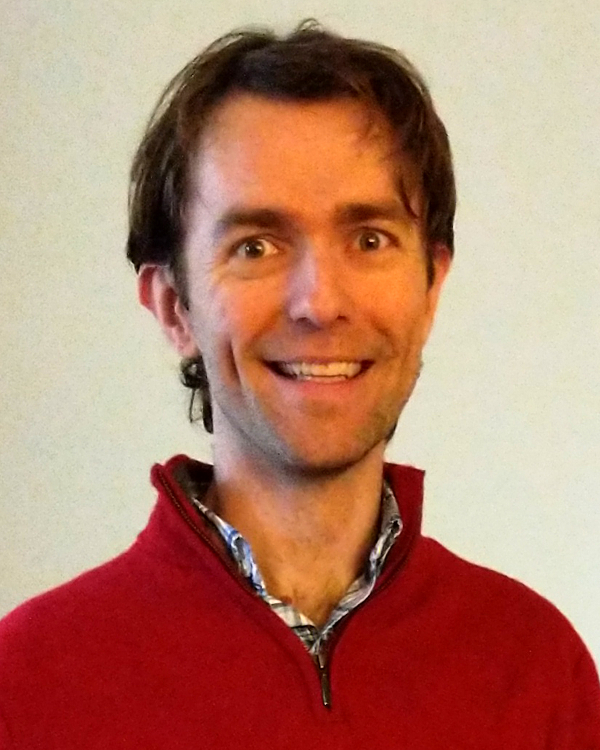
Alistair N. Boettiger, Ph.D.
Stanford University
Project Title: High Resolution Imaging of Genome Structure and Gene Regulation in Development
Grant ID: DP2-GM132935
Funded by the National Institute of General Medical Sciences
Alistair Boettiger began his research while studying physics at Princeton University, writing his thesis in the lab of Stanislav Shvartsman with additional mentorship from William Bialek. There he developed his interest in quantitative image processing and embryogenesis, and went on to apply these skills in pursuit of a Biophysics Ph.D. at UC Berkeley. Under the guidance of Michael Levine he studied the roles of shadow enhancers and polymerase proximal pausing on robust and synchronous gene expression during Drosophila embryogenesis. He then moved to Boston to learn single molecule super-resolution imaging in the lab of Xiaowei Zhuang at Harvard. His lab at Stanford now combines single-molecule imaging and developmental genetics to study cis-regulatory control of gene expression.
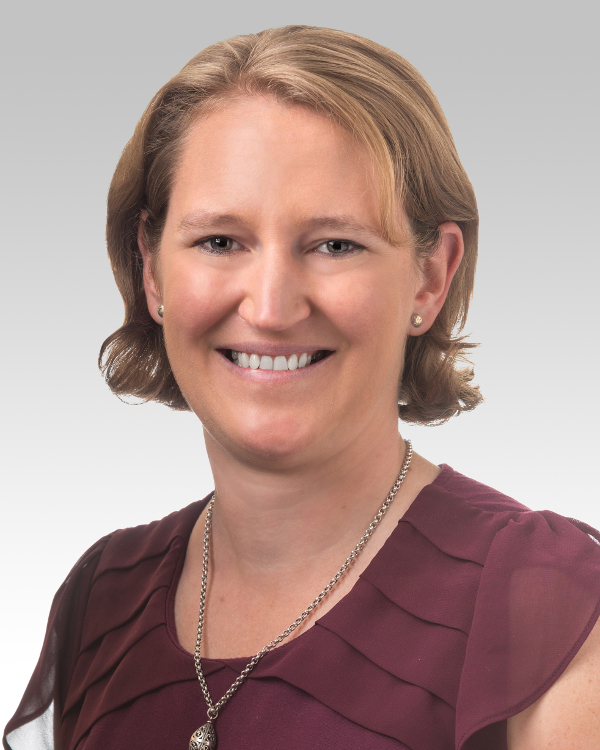
Gemma L. Carvill, Ph.D.
Northwestern University Feinberg School of Medicine
Project Title: Cell-Free DNA Sequencing Approaches to Define the Genetic Etiology of Unexplained Epilepsy
Grant ID: DP2-NS111506
Funded by other Office of the Director appropriations
Gemma Carvill is an Assistant Professor in the Department of Neurology at Northwestern University Feinberg School of Medicine in Chicago, IL. She received her Bachelor of Science from the University of Pretoria and her PhD in Human Genetics from the University of Cape Town in South Africa. Dr. Carvill performed her postdoctoral work in the laboratory of Dr. Heather Mefford at the University of Washington where she used genomic sequencing approaches to identify novel genetic etiologies in the pediatric epilepsies. Her lab continues to use these technologies to define the molecular basis of epilepsy, as well as to study how mutations in genes involved in epigenetic mechanisms cause this disorder. Gemma is a recipient of a NIH Pathway to Independence Award in 2014 as well as early career awards from Citizens United for Research in Epilepsy (CURE) and the American Epilepsy Society (AES).
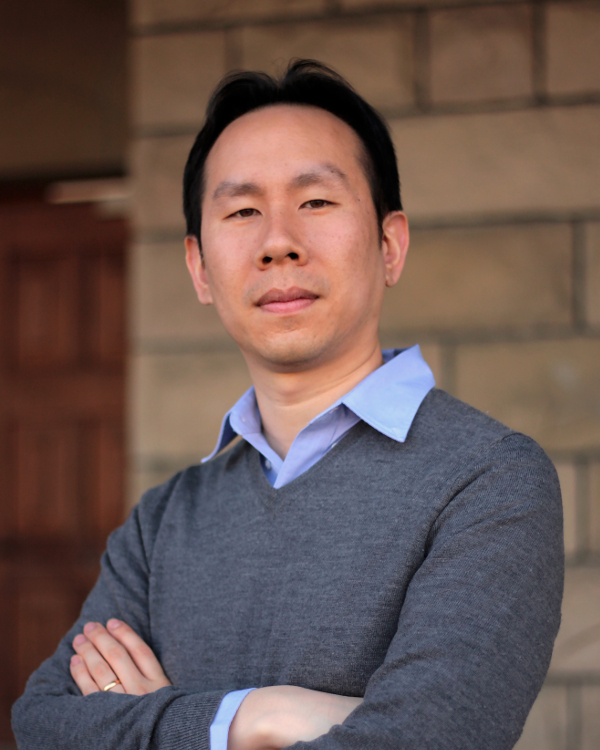
Jerry L. Chen, Ph.D.
Boston University
Project Title: Cracking Genetically Defined Neocortical Circuits across Learning and Behavior
Grant ID: DP2-NS111134
Jerry Chen received his B.A. in Molecular and Cell Biology from UC Berkeley, and his Ph.D. in Neurobiology from the Massachusetts Institute of Technology in the laboratory of Dr. Elly Nedivi, where he studied the experience-dependent plasticity of inhibitory circuits in the adult cortex. Dr. Chen then joined the laboratory of Dr. Fritjof Helchen at the University of Zurich as a post-doctoral fellow funded by the NSF International Research Fellowship Program. His studies on the function of long-range cortical circuits in sensorimotor processing was recognized with the Society for Neuroscience Peter and Patricia Gruber International Research Award and the Federation of European Neuroscience Societies / European Journal of Neuroscience Young Investigator Prize. Jerry Chen is currently an Assistant Professor in Department of Biology at Boston University where his lab investigates large-scale cortical networks underlying behavior and develops novel optical technologies for large-scale brain imaging. In addition to the NIH Director’s New Innovator Award, his lab is supported by an NARSAD Young Investigator Award, Whitehall Foundation Research Grant, Smith Family Award for Excellence in Biomedical Research, and NSF Next Generation Networks for Neuroscience Award.
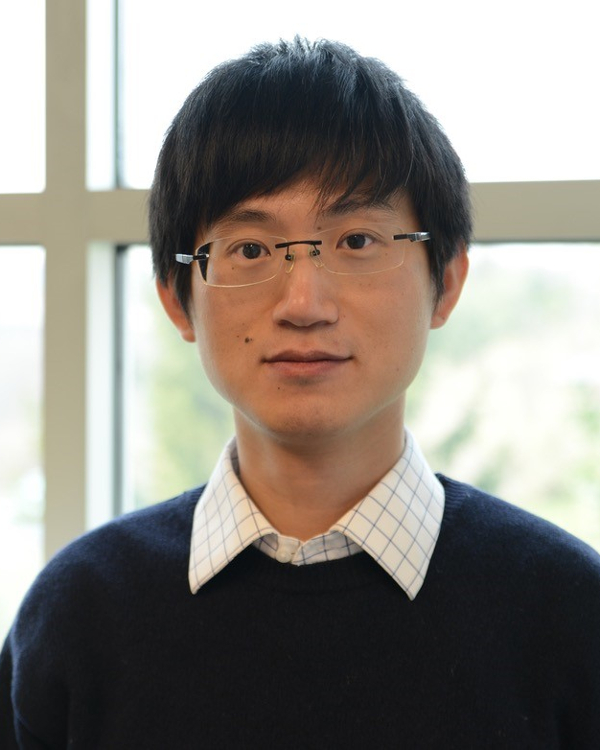
Sidi Chen, Ph.D.
Yale University
Project Title: High-Throughput In Vivo Genetics for Immunotherapy Target Discovery
Grant ID: DP2-CA238295
Funded by the National Cancer Institute
Sidi Chen graduated with a PhD from The University of Chicago, and performed postdoctoral studies at MIT and the Broad Institute. His research focuses on global understanding of complex biological systems. His research team is developing and applying novel tools such as CRISPR gene editing, in vivo tumor modeling and high-throughput screening. His team strives to tackle unsolved problems in cancer genetics, genomics and immunology at the systems level, in order to better understand cancer initiation, progression, metastasis, and immunity, for development of better therapeutics.
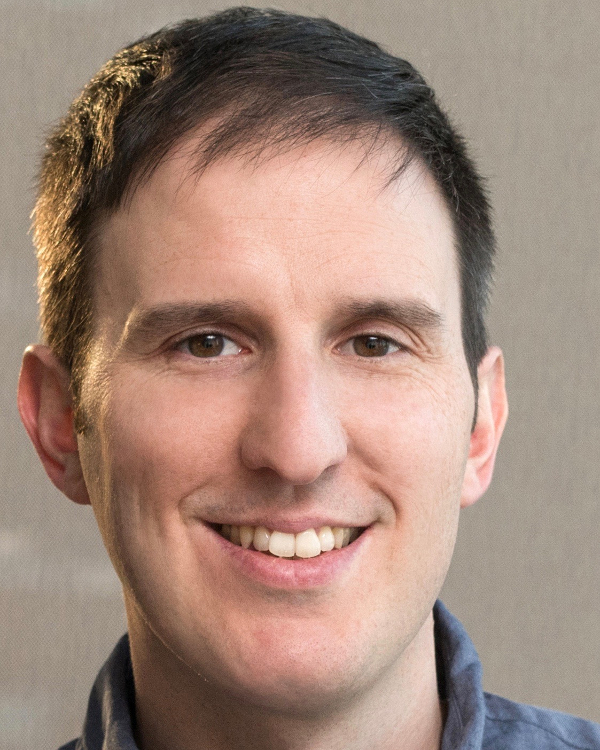
Nicolas Chevrier, Ph.D.
The University of Chicago
Project Title: Building a Predictive Framework for Adjuvant Combinatorics in Vaccine Development
Grant ID: DP2-AI145100
Funded by other Office of the Director appropriations
Nicolas Chevrier is an Assistant Professor at the Institute for Molecular Engineering at The University of Chicago since September 2017. His group develops interdisciplinary approaches and tools to study how the immune system functions across biological scales ranging from individual molecules and cells, to tissues, to a mammalian organism. He aims to characterize the multi-scale processes at play during protective immune responses, and use this information to manipulate immunity against disease. He received a B.S. in biochemistry from the Université de Bourgogne in France in 2005, an M.S. in biochemistry and immunology from the Université de la Méditérranée in France in 2007, and a Ph.D. in immunology from Harvard Medical School in 2012. He led an independent research group as part of the Bauer Fellows Program at the FAS Center for Systems Biology at Harvard University from 2012 to 2017, and is also the recipient of awards from the Melanoma Research Alliance and the American Cancer Society.
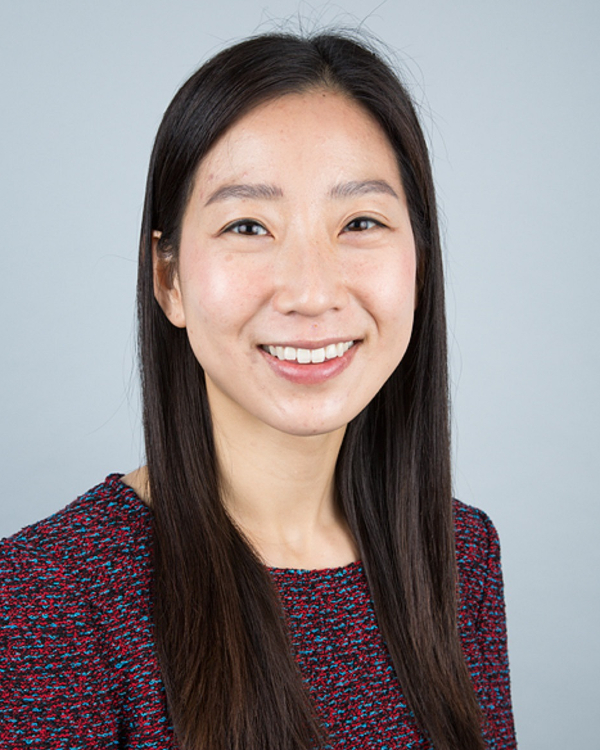
Eun Ji Chung, Ph.D.
University of Southern California
Project Title: A Revolutionary Approach for Polycystic Kidney Disease: Oral Nanotherapeutics
Grant ID: DP2-DK121328
Eun Ji Chung is a Gabilan Assistant Professor of Biomedical Engineering at the University of Southern California with courtesy appointments in the Department of Medicine, Division of Nephrology and Hypertension, and Chemical Engineering and Materials Science. Eun Ji received her B.A. with honors in Molecular Biology from Scripps College, her Ph.D. in Biomedical Engineering at Northwestern University, and completed her postdoctoral research at the Institute for Molecular Engineering at the University of Chicago. At USC, her lab aims to develop nanobiomaterials for diagnostic and therapeutic applications, particularly focusing on polycystic kidney disease and atherosclerosis. In addition to the NIH Director’s New Innovator Award, Eun Ji is a recipient of the IBNAM-Baxter Early Career Award, the American Heart Association Postdoctoral Fellowship, the Broad Innovation Award, and the NIH Pathway to Independence Award.
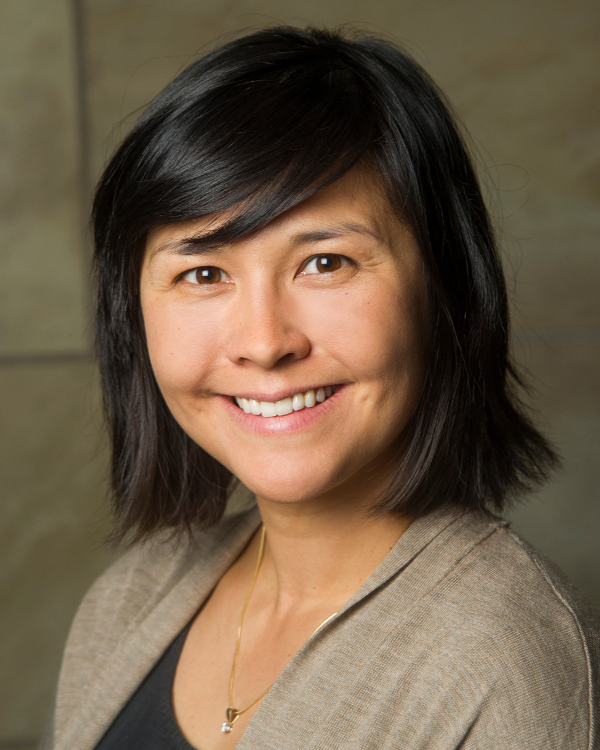
Megan Y. Dennis, Ph.D.
University of California, Davis School of Medicine
Project Title: The Function of Duplicated Genes in Human Brain Evolution and Disease
Grant ID: DP2-MH119424
Megan Dennis is an Assistant Professor in the Department of Biochemistry & Molecular Medicine in the School of Medicine at the University of California, Davis. Through her joint affiliations with the UC Davis MIND Institute and Genome Center, she and her team seeks to identify genomic contributors to human neurological traits and diseases. Megan received a bachelor’s degree in Biochemical Engineering from Michigan State University and a joint Ph.D./D.Phil. in Human Genetics from the National Institutes of Health and the University of Oxford, where she worked with Eric Green and Anthony Monaco on the genetics of dyslexia. She then completed her postdoctoral training with Evan Eichler at the University of Washington, where she characterized complex genomic structural variation and its role in human evolution and neurological disorders. In addition to the NIH Director’s New Innovator Award, Megan is a recipient of the NIH Ruth L. Kirschstein National Research Service Award through NICHD, the NIH Pathway to Independence Award from NINDS, and a Sloan Research Fellowship.
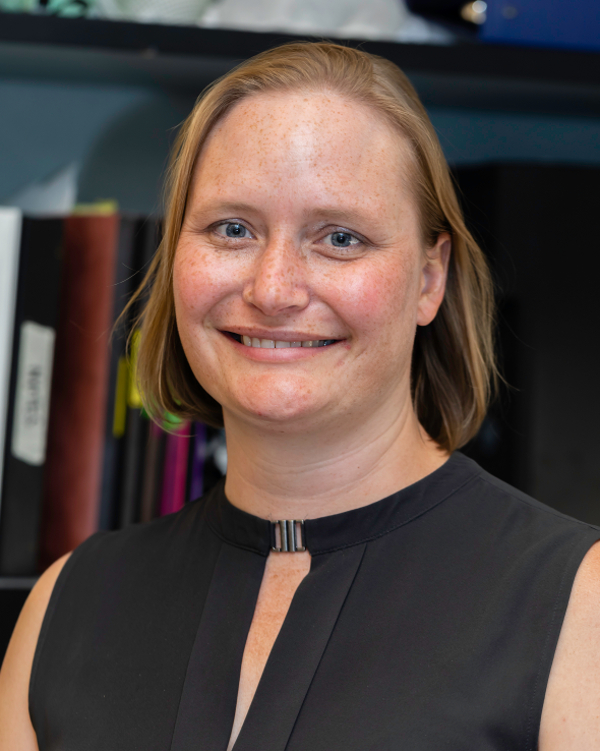
Zoe R. Donaldson, Ph.D.
University of Colorado Boulder
Project Title: Neuronal Basis of Social Motivation and the Failure to Adapt to Loss
Grant ID: DP2-MH119427
Zoe Donaldson is an Assistant Professor in the Departments of Molecular, Cellular and Developmental Biology and Psychology and Neuroscience at the University of Colorado Boulder. Dr. Donaldson received her B.S. from University of California Los Angeles, and received her Ph.D. as an HHMI Predoctoral Fellow in the laboratory of Dr. Larry Young at Emory University, where she investigated the genetic mechanisms that contribute to sociobehavioral diversity. She then joined the laboratories of René Hen and Frances Champagne at Columbia University as a Robert Wood Johnson Health & Society Scholar, where she studied the developmental sensitive periods and genetic variation underlying anxiety and depression-related traits. At the University of Colorado Boulder, her lab pioneers molecular-genetic tools in monogamous prairie voles to identify the neural and genetic basis of complex social behaviors, including social bond formation and the response to loss. In addition to the NIH Director’s New Innovator Award, the Donaldson lab is supported by the Whitehall Foundation, a National Science Foundation EDGE award, and an NIH Pathway to Independence Award.
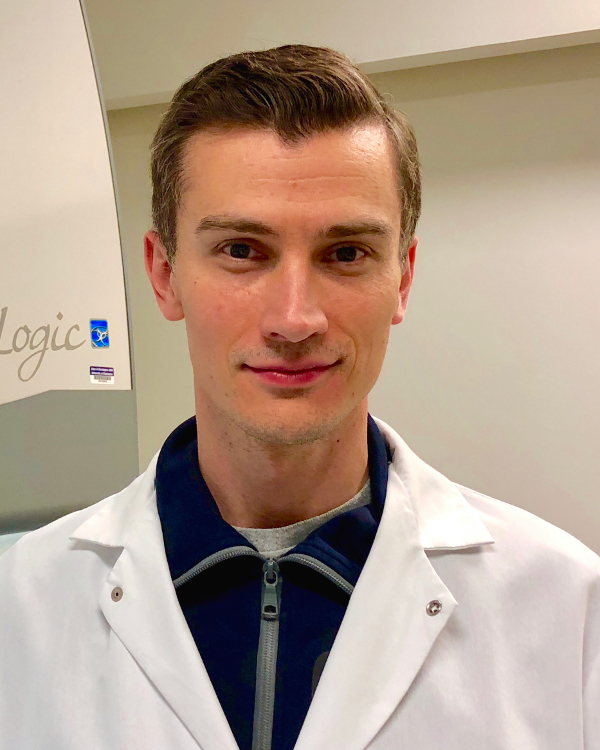
Sergei Doulatov, Ph.D.
University of Washington
Project Title: Uncovering Epigenetic Barriers to Hematopoietic Stem Cell Formation
Grant ID: DP2-HL147126
Sergei Doulatov is an Assistant Professor in the Department of Medicine, Hematology, and an Adjunct Assistant Professor in the Department of Genome Sciences at the University of Washington. He received his B.S. from the University of California, Los Angeles under the mentorship of Drs. Jeff F. Miller and Peggy Cotter, and his Ph.D. from the University of Toronto under the mentorship of Dr. John E. Dick, where he established the “roadmap” of human hematopoietic stem and progenitor cell populations enabling their purification and molecular characterization. He then joined the lab of Dr. George Q. Daley at the Harvard Medical School as a Howard Hughes Medical Institute Fellow of The Helen Hay Whitney Foundation, where he developed strategies to generate hematopoietic stem cells from pluripotent stem cells. The Doulatov lab at the University of Washington studies human hematopoiesis in health and disease by leveraging primary human and pluripotent stem cell models. In addition to the NIH Director’s New Innovator Award, he is the recipient of the Gilead Research Scholars Award and the NIH Pathway to Independence Award.
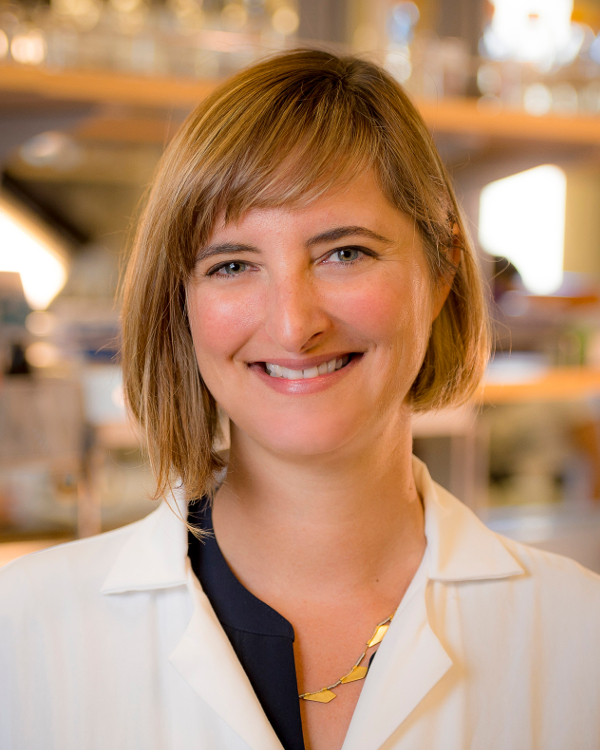
Rachel Dutton, Ph.D.
University of California, San Diego
Project Title: Molecular Mechanisms that Shape Microbial Communities
Grant ID: DP2-AT010401
Rachel Dutton is an Assistant Professor of Molecular Biology in the Division of Biological Sciences at the University of California, San Diego. Dr. Dutton received her B.S. in Molecular Biology from UCSD, and her Ph.D. in Microbiology and Molecular Genetics from Harvard Medical School in Dr. Jon Beckwith’s lab studying the diversity of disulfide bond formation pathways in bacteria. She then received a Bauer Fellowship from Harvard University to start her own research group in the Center for Systems Biology, where she developed a model system to study microbiomes based on the simple and highly reproducible microbial communities in fermented foods. Her lab now uses this system to dissect the basic principles and mechanisms of microbial community formation. In addition to the NIH Director’s New Innovator Award, her lab is supported by the Packard Fellows program, and the Pew Scholars Program in Biomedical Sciences.
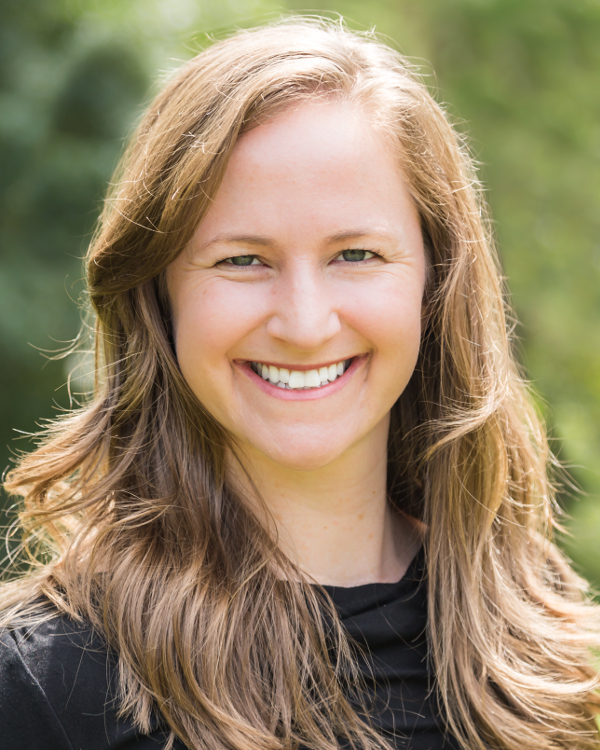
Katherine B. Ehrlich, Ph.D.
University of Georgia
Project Title: Innovative Approaches to the Study of Social Determinants of Health in Children
Grant ID: DP2-MD013947
Katherine Ehrlich is an Assistant Professor at the University of Georgia where she holds a joint appointment in the Department of Psychology and the Center for Family Research. Dr. Ehrlich received her B.A. at Washington & Lee University, her Ph.D. in Psychology at the University of Maryland, and she completed a postdoctoral fellowship at Northwestern University. Dr. Ehrlich’s research, which lies at the intersection of developmental, clinical, and health psychology, focuses on how social experiences, such as early adversity, close relationships, and socioeconomic status are associated with physical health across the lifespan. In addition to utilizing a variety of methods to evaluate social and emotional functioning, her research incorporates a number of health assessments, including clinical health outcomes, measures of cellular function, and adaptive immunity. Dr. Ehrlich is a recipient of pre- and post-doctoral Ruth L. Kirschstein National Research Service Awards, a NARSAD Young Investigator Grant, an R03 from the National Institute of Child Health and Human Development, and was named a Rising Star by the Association for Psychological Science.
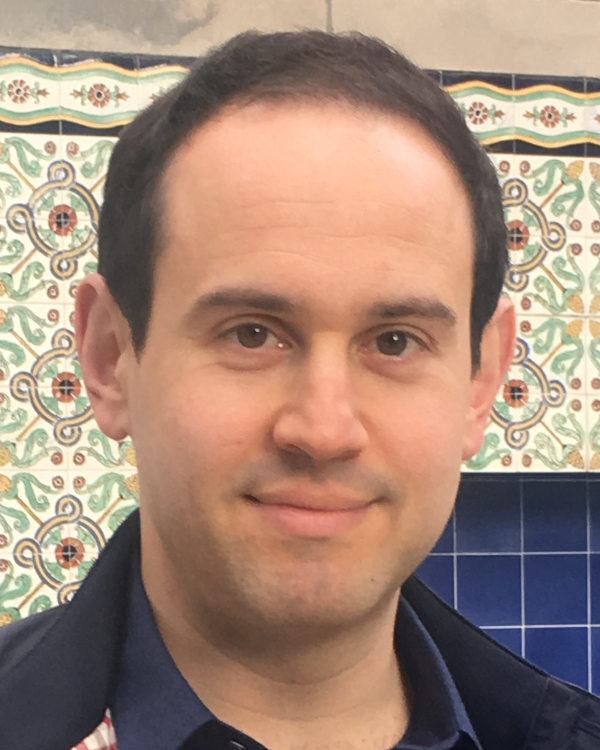
Evan H. Feinberg, Ph.D.
University of California, San Francisco
Project Title: High-Resolution Neural Circuit Dissection with Controllers Locally Affecting Synaptic Partners (CLASP)
Grant ID: DP2-MH119426
Evan Feinberg is an Assistant Professor in the Department of Anatomy at the University of California, San Francisco, and a member of the Kavli Institute for Fundamental Neuroscience and the Center for Integrative Neuroscience. His lab studies sensorimotor integration using optical, genetic, and behavioral approaches in mice. Evan received an A.B. from Harvard University, where he worked with Craig Hunter on the mechanisms underlying RNA interference, and a Ph.D. from The Rockefeller University in the laboratory of Cornelia Bargmann, where he developed GFP reconstitution across synaptic partners (GRASP) to visualize synapses between defined neurons in vivo. As a Helen Hay Whitney Fellow with Markus Meister at Harvard University, Evan performed the first two-photon calcium imaging study of the superior colliculus and discovered its columnar functional architecture. In addition to the NIH Director’s New Innovator Award, Evan is supported by a Klingenstein-Simons Fellowship Award in Neurosciences and the E.M. Ziegler, Brain & Behavior Research, Whitehall, and Simons Foundations.
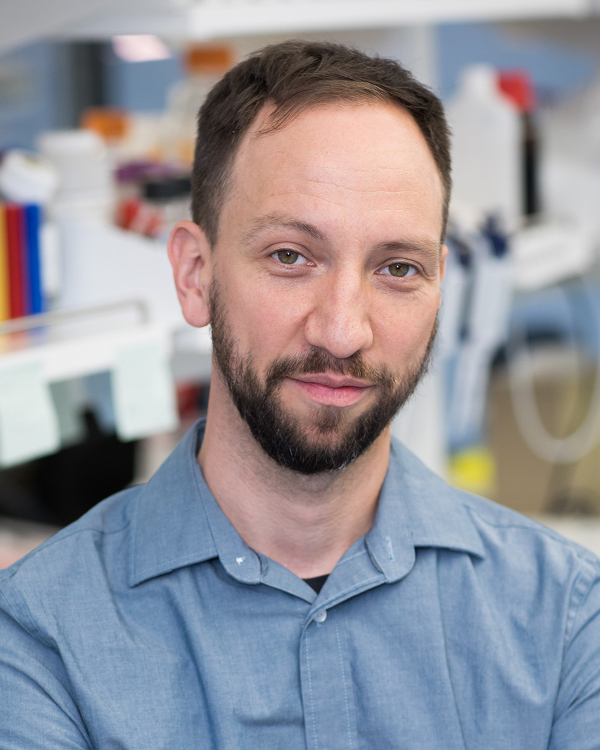
Stephen N. Floor, Ph.D.
University of California, San Francisco and Helen Diller Family Comprehensive Cancer Center
Project Title: The Impact of Human RNA Diversity on Protein Production and Cell Fate
Grant ID: DP2-GM132932
Funded by the National Institute of General Medical Sciences
Stephen Floor joined the University of California, San Francisco as an Assistant Professor in the Department of Cell and Tissue Biology in 2017. His lab studies how the diverse RNA molecules produced from human genes interact with regulatory factors to control gene expression, and how these processes are changed in diseases like cancers and developmental disorders. He received undergraduate degrees in Computer Science and Physics at the University of Kansas and a PhD in Biophysics at UCSF with John Gross, and was a HHMI fellow of the Helen Hay Whitney Foundation with Jennifer Doudna at UC Berkeley. His lab’s research is also supported by the California Tobacco-Related Disease Research Program and the UCSF-Sandler Foundation Program for Breakthrough Biomedical Research. Outside of lab, he enjoys raising his two sons, cooking, exploring the Bay Area, and music.
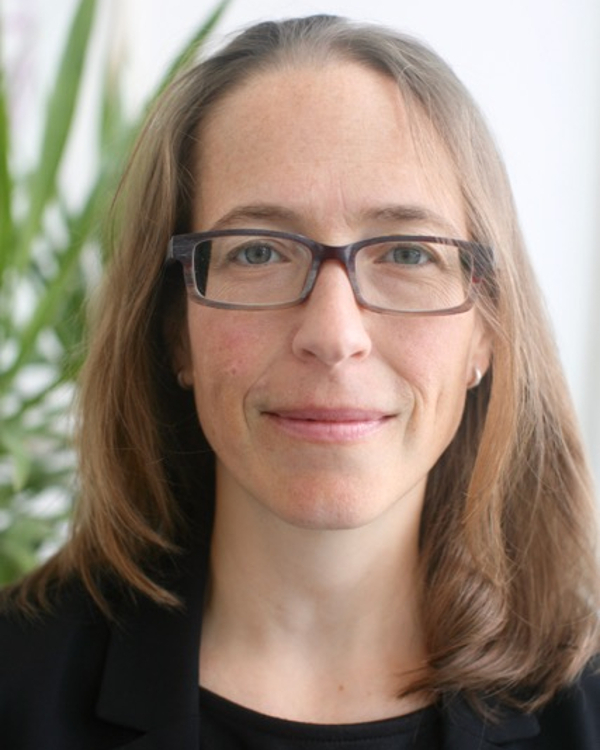
Kendra K. Frederick, Ph.D.
UT Southwestern Medical Center
Project Title: High Sensitivity NMR for Structure Determination of Neurodegenerative Disease Associated Protein Aggregates in Native Contexts
Grant ID: DP2-NS111236
Kendra K. Frederick is an Assistant Professor in the Department of Biophysics at UT Southwestern. Her lab focuses on developing applications and methodology for sensitivity-enhanced solid-state NMR spectroscopy to determine how cellular environments affect protein structures, such as those involved in the initiation and progression of human diseases. Dr. Frederick holds a B.S. in Biochemistry and French from the University of Michigan, a master’s degree in Protein Structure, Function and Engineering from the Université de Paris XI and a Ph.D. in Biochemistry and Molecular Biophysics from the University of Pennsylvania. Dr. Frederick received a Ruth L. Kirschstein NRSA fellowship from the NIH and a Life Science Research Foundation Fellowship from the HHMI to pursue postdoctoral training with Dr. Susan Lindquist and Dr. Robert Griffin at MIT. Since establishing her independent group, in addition to receiving the NIH Director’s New Innovator Award, Dr. Frederick has been named a Searle Scholar, a CPRIT Scholar, and the Lupe Murchinson Foundation Scholar in Medical Research and has received a CAREER Award from the NSF.
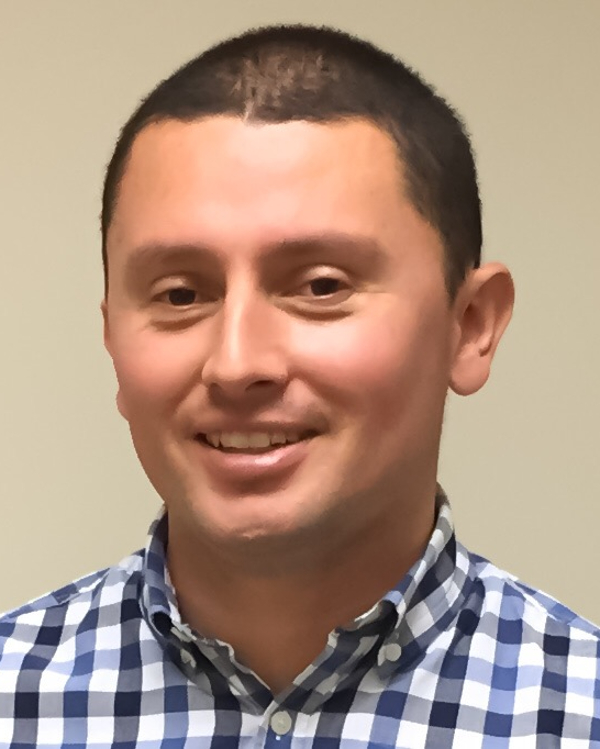
Daniel Gallego-Perez, Ph.D.
The Ohio State University
Project Title: Novel Nanoscale Approaches to Whole Tissue Reprogramming
Grant ID: DP2-EB028110
Funded by other Office of the Director appropriations
Daniel Gallego-Perez is an Assistant Professor in the Departments of Biomedical Engineering and Surgery at The Ohio State University (OSU). He received his Ph.D. in Biomedical Engineering from OSU. As a Postdoctoral Researcher at OSU’s Center for Affordable Nanoengineering of Polymeric Biomedical Devices, he pioneered the development of nanoscale tools for deterministic and non-viral gene delivery, in vitro and in vivo. His lab is currently focused on the development of novel biomedical nanotechnologies for fundamental and translational applications, with special emphasis on elucidating and modulating the mechanisms that control tissue plasticity for applications in regenerative medicine and cell-based therapies.
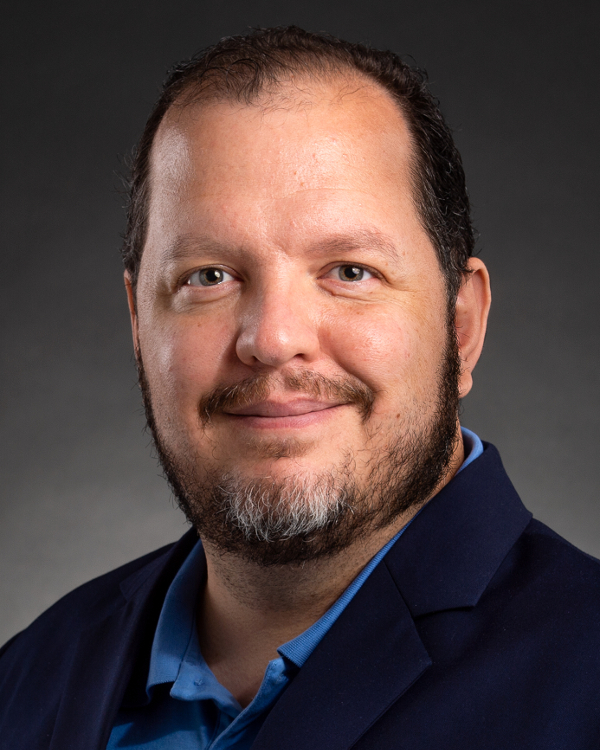
Charles Gawad, M.D., Ph.D.
St. Jude Children's Research Hospital
Project Title: Creating a Catalog of Cancer Clonotype Drug Sensitivities with Single-Cell Genome Sequencing
Grant ID: DP2-CA239145
Charles Gawad is an Assistant Member in the Departments of Oncology and Computational Biology at St. Jude Children’s Research Hospital. After completing his undergraduate degrees at Arizona State University, he obtained his medical degree from the University of Arizona, spending a year as an HHMI-NIH Research Scholar. He then completed training in pediatrics at UCLA, followed by pediatric hematology-oncology training at Stanford, during which he completed his Ph.D. in Cancer Biology in Patrick O. Brown’s lab as part of the Advanced Residency Training at Stanford (ARTS) where they unexpectedly discovered circular RNA is an abundant new class of noncoding RNA. Dr. Gawad then completed postdoctoral training in Stephen Quake’s group where they developed novel strategies for determining the evolutionary histories of cancers using single-cell genomics, and his lab now focuses on combining sequencing with novel biochemical and computational methods to more deeply understand the development and treatment resistance of cancer. In addition to the New Innovator award, his lab has been supported by the Burroughs Wellcome Fund, Leukemia and Lymphoma Society, American Society of Hematology, Eleftheria Foundation, and Hyundai Foundation for Pediatric Cancer Research.
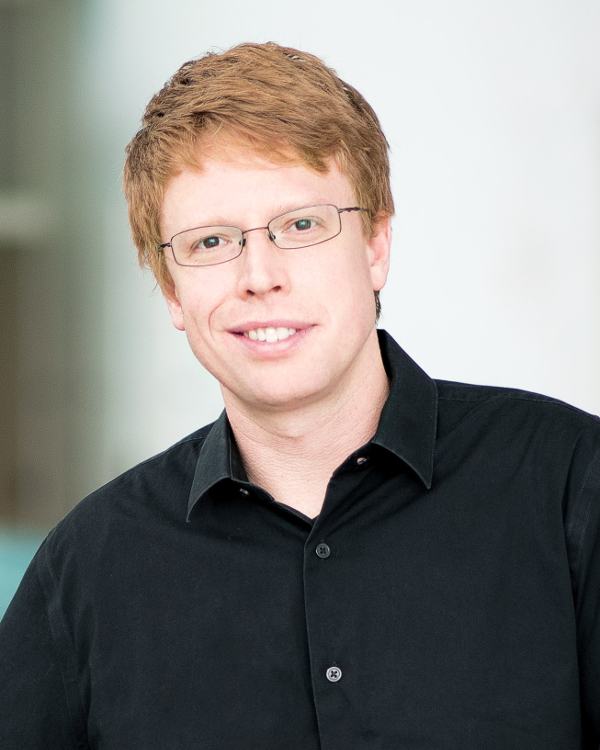
Luke Gilbert, Ph.D.
University of California, San Francisco
Project Title: A Genetic Interaction Map of the Human Nucleus
Grant ID: DP2-CA239597
Luke Gilbert is an Assistant Professor in the Department of Urology, the Helen Diller Family Comprehensive Cancer Center and the Innovative Genomics Institute at UCSF and is the Goldberg-Benioff Endowed Professor in Prostate Cancer Translational Biology. He received a B.S. in Microbiology, Immunology and Molecular Genetics from UCLA and then a Ph.D. from MIT where he worked with Dr. Michael Hemann to characterize how the tumor microenvironment promotes anti-cancer drug resistance. As a postdoctoral fellow, he worked with Dr. Jonathan Weissman at UCSF where he helped pioneer repurposed CRISPR systems that are used to turn genes on (CRISPRa) and off (CRISPRi) by editing the epigenome. In his independent lab at UCSF, Dr. Gilbert continues to pioneer CRISPR functional genomics platforms for genome-scale screens and genetic interaction mapping applied to high impact problems in prostate, leukemia and lung cancers. In addition to the NIH Director’s New Innovator Award, his lab is supported by DARPA, Gabrielle’s Angel Foundation for Cancer Research, and an NIH Pathway to Independence Award.
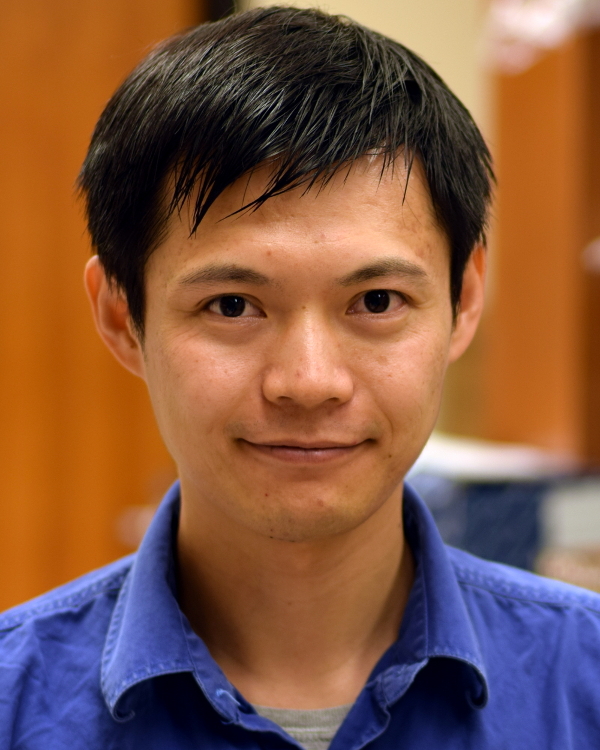
Yiyang Gong, Ph.D.
Duke University
Project Title: Voltage Imaging Dissection of the Mammalian Cortex
Grant ID: DP2-NS111505
Yiyang Gong is an Assistant Professor in the Department of Biomedical Engineering at Duke University. He obtained his B.S. from the California Institute of Technology; he then received an M.S. and Ph.D from Stanford University working in the group of Prof. Jelena Vučković, where he developed nanophotonic devices for optical communication. He then trained as a postdoctoral fellow in Prof. Mark Schnitzner’s lab at Stanford University, where he developed fast fluorescent protein sensors that reported spiking voltage activity in live animal models. The Gong lab now works on developing optical and protein techniques that can measure fast activity transients of the brain. The Gong lab is also supported by the Beckman Young Investigator Award, the Brain Research Foundation, the Vallee Young Investigator Award, and the Sloan Fellowship.
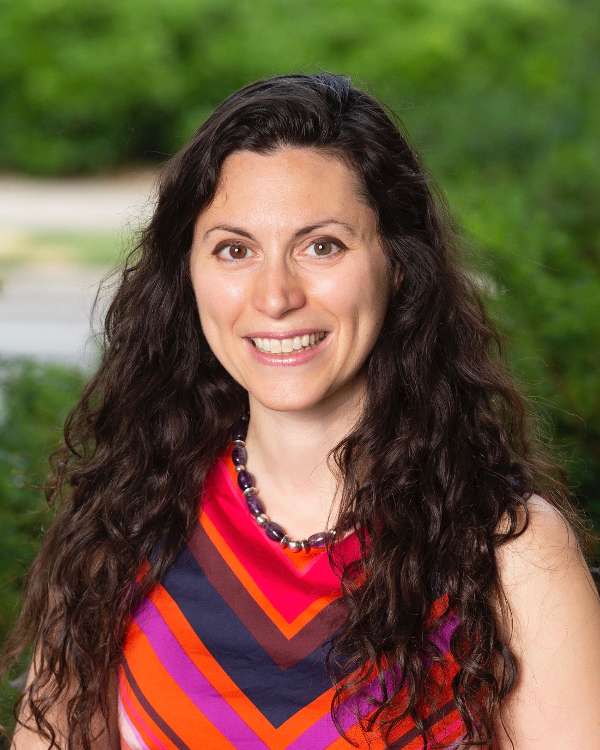
Reyna L. Gordon, Ph.D.
Vanderbilt University Medical Center, Vanderbilt University
Project Title: Biomarkers of Rhythmic Communication: Integrating Foundational and Translational Approaches
Grant ID: DP2-HD098859
Dr. Gordon holds a Bachelor of Music in Vocal Arts (Italian minor) from the University of Southern California, an M.S. in Neuroscience from the University of Provence, a Ph.D. in Complex Systems and Brain Sciences from Florida Atlantic University, and she completed postdoctoral training in developmental disabilities at the Vanderbilt Kennedy Center. The intersection of these multi-disciplinary interests led to her current research program focused on the role of rhythm in language development and in speech-language disorders from behavioral, cognitive, neural, and genetic perspectives. Dr. Gordon is an Assistant Professor in the Department of Otolaryngology at Vanderbilt University Medical Center, where she directs the Music Cognition Lab, a dynamic group that engages Vanderbilt University students from a wide range of graduate degree programs and staff from diverse backgrounds. In her leadership role in the Program for Music, Mind & Science at Vanderbilt, Dr. Gordon has both created interdisciplinary collaborative opportunities in the field and supported public awareness of science by developing infrastructure for new initiatives on campus, chairing symposia, fostering research partnerships with community organizations, and serving on the Board of the Society for Music Perception and Cognition. She also has faculty appointments at the Vanderbilt Genetics Institute, the Vanderbilt Brain Institute, the Department of Psychology, the Vanderbilt Kennedy Center, and the Curb Center for Art, Enterprise, and Public Policy.
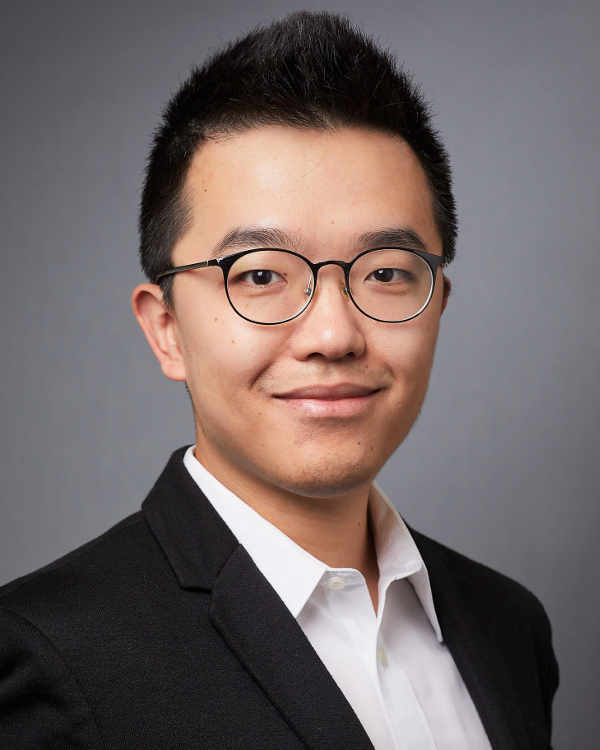
Junjie Guo, Ph.D.
Yale University School of Medicine
Project Title: Molecular and Cellular Determinants of RNA Repeat-Associated Properties
Grant ID: DP2-GM132930
Junjie Guo is an Assistant Professor in the Department of Neuroscience at Yale University School of Medicine. A graduate of Peking University, he received a Ph.D. from Johns Hopkins University, working with Hongjun Song on neuronal DNA methylation in the adult brain. As a Damon Runyon Fellow in David Bartel's laboratory at the Whitehead Institute/MIT, he developed a series of computational and experimental methods to investigate circular RNAs and intracellular RNA folding. Started in 2017, his laboratory at Yale aims to develop new tools to study post-transcriptional regulations of mRNAs and noncoding RNAs in the nervous system, as well as their dysregulation in neurological disorders. Dr. Guo was a recipient of the Harold M. Weintraub Award (2012), the Peter and Patricia Gruber International Research Award in Neuroscience (2012), and was recently named a Yale Scholar in Neurodegenerative Research (2017) and the Klingenstein-Simons Fellow in Neuroscience (2018).
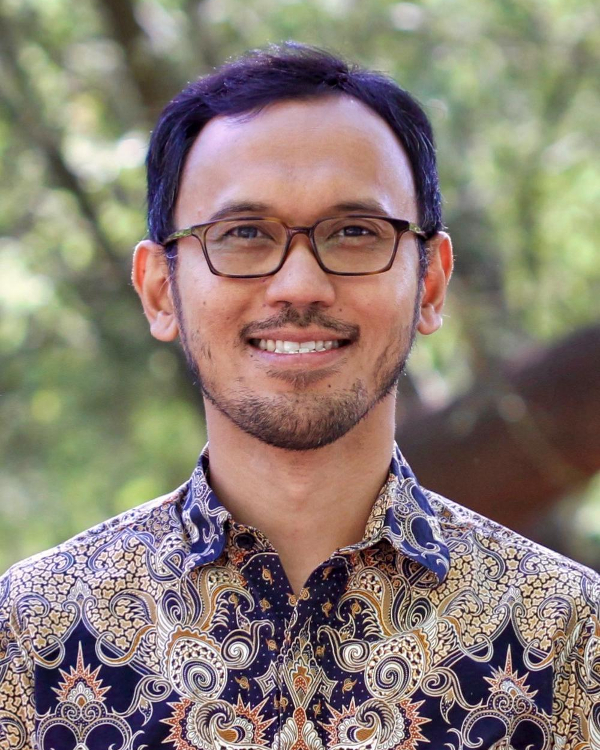
Rizal F. Hariadi, Ph.D.
Arizona State University
Project Title: Nanoscale Reconstruction of Mechanical Systems Involved in Disease Pathogenesis
Grant ID: DP2-AI144247
Rizal Hariadi joined Arizona State University in 2016 as an Assistant Professor in the Department of Physics and the Biodesign Institute, where he established BIOmolecular Mechanics And Nanotechnology LABoratory (BIOMAN LAB). His passion for science began with an enlightening experience in the Indonesian Physics Olympiad team, leading to his undergraduate degrees at Washington State University followed by a Ph.D. at California Institute of Technology. There, Rizal focused on the non-equilibrium dynamics of DNA nanotubes and the hydrodynamics of bursting bubbles under the guidance of Erik Winfree and Bernard Yurke. He subsequently completed postdoctoral research in single-molecule biophysics at both the University of Michigan with Sivaraj Shivaramakrishnan and the Wyss Institute at Harvard University with Peng Yin. Currently, his interdisciplinary team at Arizona State University develops precision tools from the molecular to centimeter-scale for bottom-up reconstruction of mechanical systems involved in disease pathogenesis.
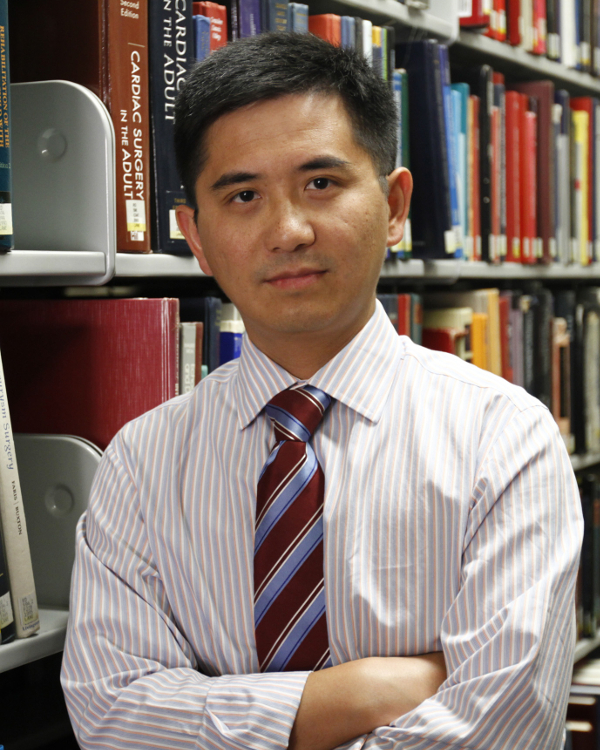
Jun Huang, Ph.D.
The University of Chicago
Project Title: Molecular Mechanism of Natural Killer Cell Recognition
Grant ID: DP2-AI144245
Jun Huang is an Assistant Professor in the Institute for Molecular Engineering at The University of Chicago. His lab carries out basic research with a focus on molecular mechanisms of T cell and NK cell recognition, as well as translational research with the objective of developing immunotherapies for cancer and HIV. He received his Ph.D. in Bioengineering from Georgia Institute of Technology where he worked with Prof. Cheng Zhu to measure the in situ binding kinetics of T cell receptors. As a postdoctoral fellow working with Prof. Mark Davis at Stanford University, he developed a single-molecule imaging method to quantify T cell sensitivity. In addition to the New Innovator award, he is a recipient of the NSF Career Award, the Cancer Research Foundation Young Investigator Award, and the NIH Pathway to Independence Award.

Rajan Jain, M.D.
Perelman School of Medicine, University of Pennsylvania
Project Title: Deciphering Nuclear Lamina-Chromatin Organization in Cellular Competence and Cardiac Development
Grant ID: DP2-HL147123
Rajan Jain is an Assistant Professor in the Departments of Medicine and Cell and Developmental Biology at the Perelman School of Medicine at the University of Pennsylvania. In 2016, he launched his laboratory studying how three-dimensional genome organization establishes and maintains cellular identity. The Jain laboratory seeks to decipher the rules governing spatial positioning of the genome and the implications for disease resulting from abnormal nuclear architecture. Rajan received his B.A. in Molecular and Cellular Biology from the University of California, Berkeley and his M.D. from New York University School of Medicine. He completed his clinical training in Internal Medicine and Cardiology at the University of Pennsylvania, and his postdoctoral research in the laboratory of Jonathan A. Epstein, where he focused on cell fate decisions and the mechanistic basis for cellular plasticity in multiple organ systems. Rajan is the recipient of an NIH K08, Gilead Research Scholars Program Award, W.W. Smith Foundation Award, and the Burroughs Wellcome Fund Career Award for Medical Scientists.
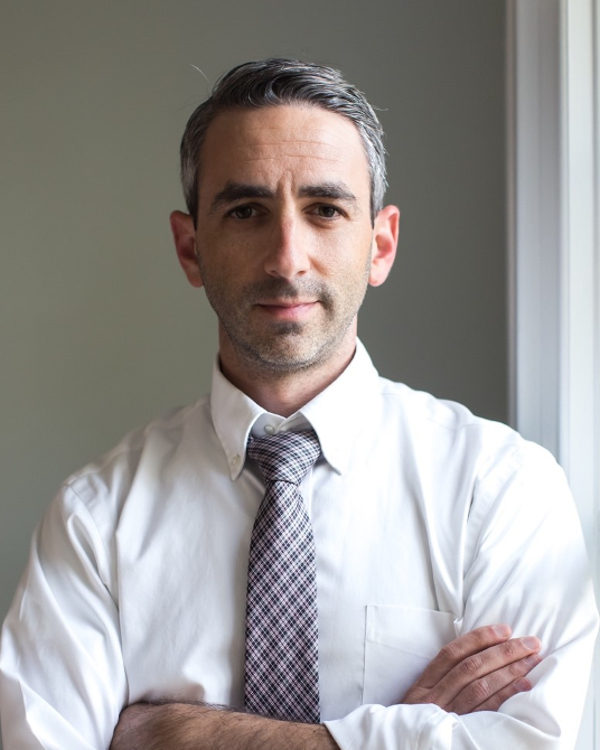
Matthew S. Kayser, M.D., Ph.D.
Perelman School of Medicine at the University of Pennsylvania
Project Title: Building Brains in Our Sleep: A Drosophila Larval Platform for Examining Sleep and Neurogenesis
Grant ID: DP2-NS111996
Funded by the National Institute of Neurological Disorders and Stroke
Matthew Kayser is an Assistant Professor of Psychiatry and Neuroscience at the Perelman School of Medicine at the University of Pennsylvania. He received his ScB with Honors in Neuroscience from Brown University, and his M.D./Ph.D. from the University of Pennsylvania. As a postdoc in Amita Sehgal’s lab at Penn, be began using Drosophila to study sleep. Dr. Kayser’s current research focuses on the regulation and function of sleep in the developing brain. He is also the recipient of the Burroughs Wellcome Career Award for Medical Scientists, March of Dimes Basil O’Connor Award, Alfred P. Sloan Foundation Research Fellowship, and Doris Duke Clinical Scientist Development Award.
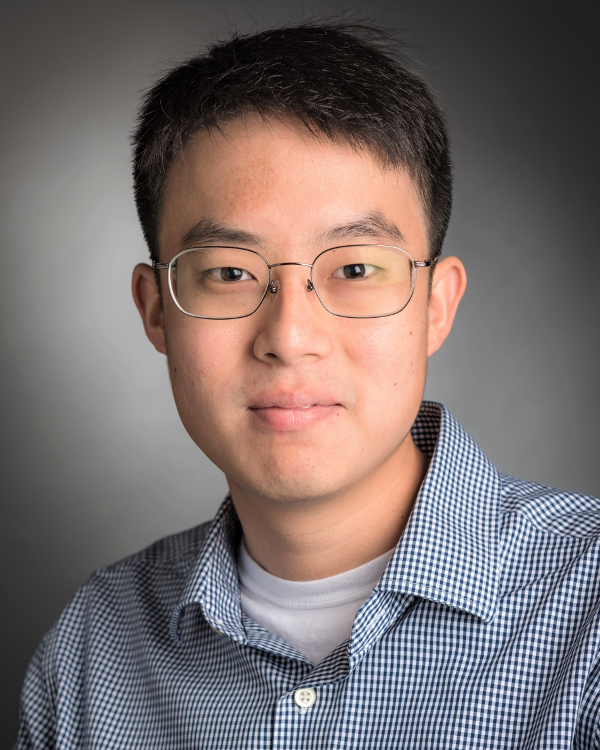
Justin Kim, Ph.D.
Dana-Farber Cancer Institute and Harvard Medical School
Project Title: Post-Translational Modification of Protein Surfaces
Grant ID: DP2-ES030448
Justin Kim is an Assistant Professor in the Department of Cancer Biology at Dana-Farber Cancer Institute and the Department of Biological Chemistry and Molecular Pharmacology at Harvard Medical School. His research group focuses on the development of new chemical technologies for the discovery and modulation of protein-protein interactions. Justin received his A.B. in Chemistry and Physics at Harvard University. His Ph.D. work with Dr. Mohammad Movassaghi at MIT was directed toward the chemical synthesis of bioactive complex natural products and his postdoctoral research with Dr. Carolyn Bertozzi at UC Berkeley and Stanford University focused on the development of biologically compatible chemical reactions.
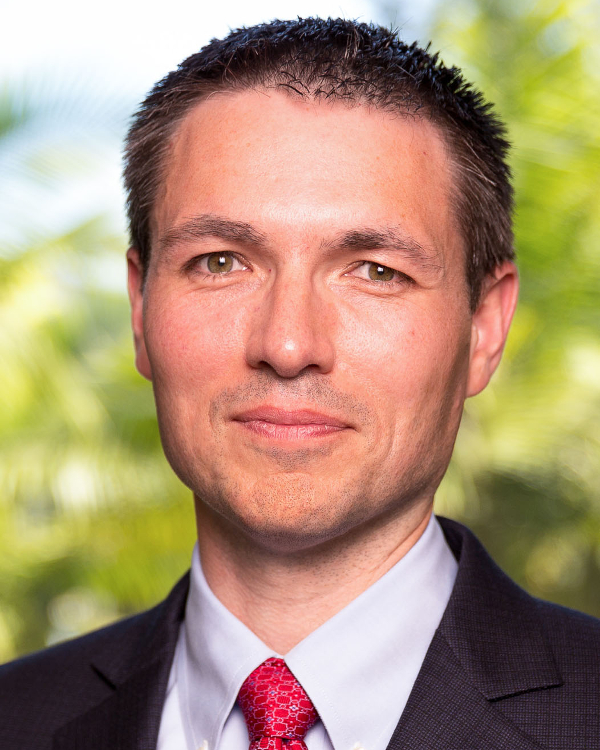
Kevin R. King, M.D., Ph.D.
University of California San Diego
Project Title: Elucidating Cell Communication Networks During Tissue Inflammation, Fibrosis, and Regeneration
Grant ID: DP2-AR075321
Kevin King is an Assistant Professor of Medicine and Bioengineering and a clinical cardiologist at the University of California San Diego. His multi-disciplinary lab uses single cell technologies and intravital imaging to study how the immune system responds to tissue injury, and how it shapes fibrosis, repair, and regeneration. The lab is particularly interested in the cellular and molecular mechanisms that mediate communication, competition, and collaboration between cells within solid organs. Kevin received M.S. and Ph.D. degrees in Electrical and Biomedical Engineering from the Massachusetts Institute of Technology and an M.D. from Harvard Medical School; did a residency in Internal Medicine at Stanford University Hospital; and completed a fellowship in Cardiology at Brigham and Women’s Hospital and Massachusetts General Hospital, during which he worked with Drs. Ralph Weissleder and Matthias Nahrendorf revealing new pathways by which injury in the heart activates the immune system. Kevin is a recipient of multiple American Heart Association Grants and the NIH Pathway to Independence Award.
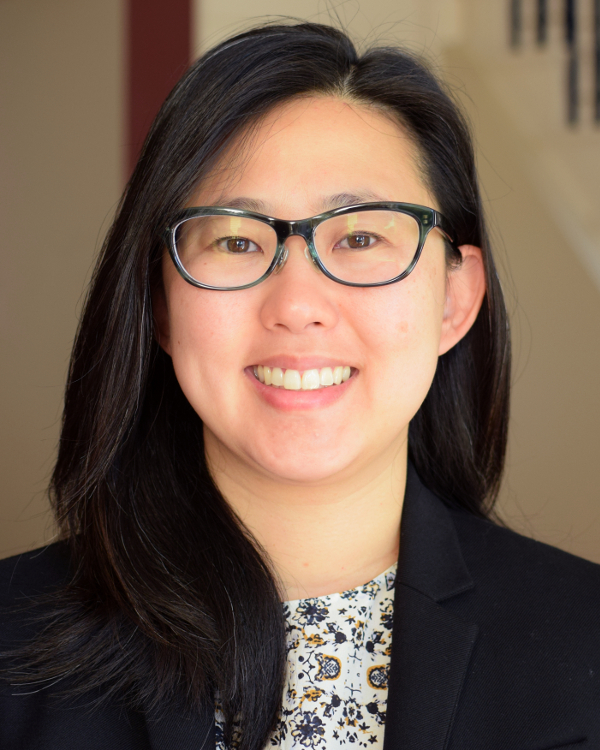
Ester J. Kwon, Ph.D.
University of California San Diego
Project Title: Nanoscale Biomaterials for Targeted Repair in Traumatic Brain Injury
Grant ID: DP2-NS111507
Ester J. Kwon is an Assistant Professor in the Bioengineering Department at the University of California San Diego. She earned her B.S. in Bioengineering and B.A. in Molecular & Cell Biology at UC Berkeley and went on to earn her Ph.D. in Bioengineering at the University of Washington in the lab of Suzie H. Pun, where she engineered polymeric nanoparticles grafted with peptides for the delivery of plasmid DNA into the central nervous system. In her postdoctoral research at MIT in the laboratory of Sangeeta N. Bhatia, she built several nanomaterial scaffolds for application to cancer, bacterial infections, and traumatic brain injury. In her own lab, Ester is interested in engineering nanoscale tools, diagnostics, and treatments for diseases that affect the central nervous system. Integral to her research program is the creation of an inclusive research community through the support and mentorship of trainees.
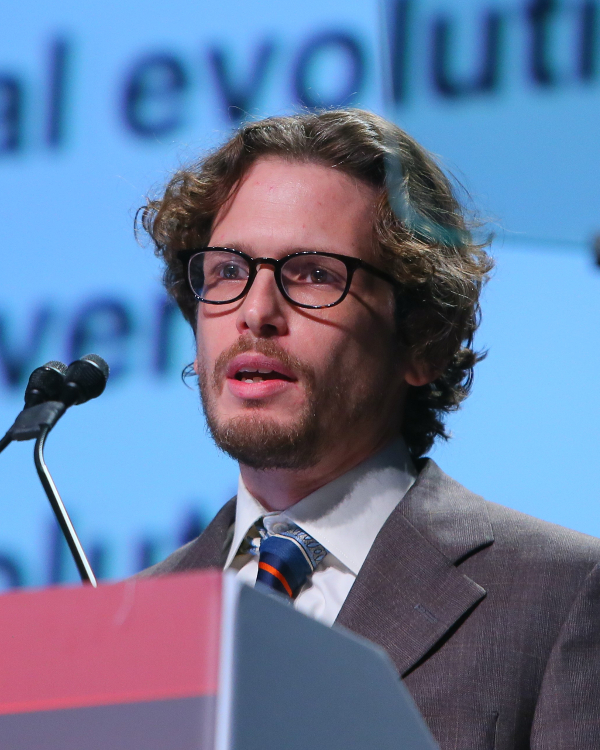
Dan A. Landau, M.D., Ph.D.
Weill Cornell Medicine and New York Genome Center
Project Title: Shapeshifters in Cancer: Defining the Fundamental Forces of Leukemia Evolution
Grant ID: DP2-CA239065
Dan is an assistant professor of Medicine and of Physiology and Biophysics at Weill Cornell Medicine, and a core member of the New York Genome Center. He received his MD from Tel Aviv University and his PhD from the Université Paris Diderot. He completed a residency in internal medicine and a fellowship in hematology and medical oncology at Yale University, and a postdoctoral fellowship at the Dana-Farber Cancer Institute and the Broad Institute of MIT and Harvard. At Weill Cornell Medicine and the New York Genome Center, where he has been a faculty member since 2016, he and his team seek to define the evolutionary dynamics of cancers that enable them to progress and become resistant to therapy. Dr. Landau has received numerous awards including Burroughs Wellcome Fund Award for Medical Scientists, NIH Big Data to Knowledge K01 award, Sidney Kimmel Cancer Foundation Scholar Award, SU2C Innovative Research Grant, ASH Scholar Award, LLS TRP Award, and Pershing Square Sohn Prize for Young Investigators in Cancer Research.
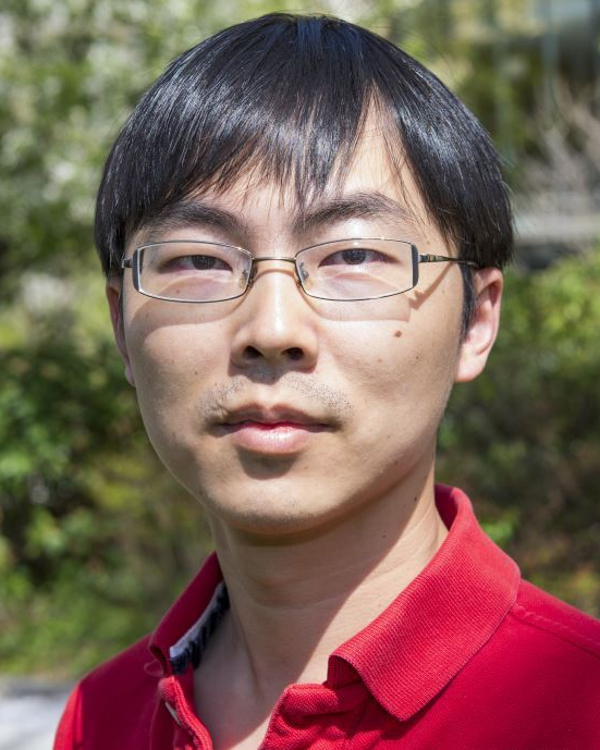
Shixin Liu, Ph.D.
The Rockefeller University
Project Title: Probing Symmetry Breaking in Epigenetic Inheritance: From Single Molecules to Systems Biology
Grant ID: DP2-HG010510
Shixin Liu is an Assistant Professor and Head of Laboratory of Nanoscale Biophysics and Biochemistry at The Rockefeller University, and his lab mainly employs single-molecule biophysical tools to study the interaction, cooperation, and competition between key machineries involved in prokaryotic and eukaryotic gene replication and expression. He entered the Special Class for the Gifted Young at the University of Science and Technology of China and received a B.S. in Biology. He did his graduate research with Xiaowei Zhuang at Harvard University where he used single-molecule fluorescence methods to study enzymology and protein-nucleic acid interactions. After receiving a Ph.D. in Chemistry in 2009, he joined Carlos Bustamante's group at the University of California, Berkeley as a postdoctoral fellow, where he investigated the mechanical operation of individual biomolecular motors. He is the recipient of an NIH Pathway to Independence Award, a Monique Weill-Caulier Career Scientist Award, a Basil O'Connor Starter Scholar Research Award, and a Kimmel Scholar Award.
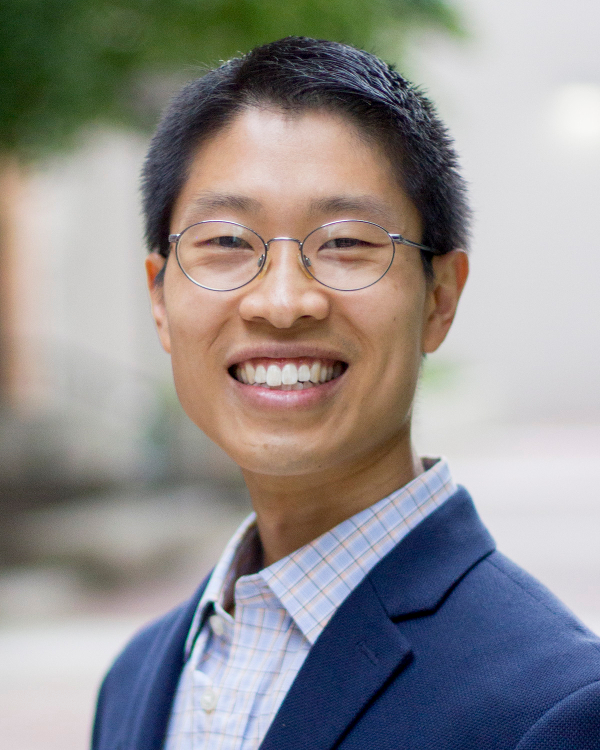
Po-Ru Loh, Ph.D.
Brigham and Women's Hospital, Harvard Medical School, and Broad Institute
Project Title: Revealing Somatic Genome Alterations and Their Clinical Sequelae: Ultrasensitive Computational Detection of Mosaic Structural Variants
Grant ID: DP2-ES030554
Po-Ru Loh is an Assistant Professor of Medicine in the Division of Genetics and Center for Data Sciences at Brigham and Women's Hospital and Harvard Medical School and an Associate Member of the Broad Institute. He received his B.S. in mathematics from the California Institute of Technology and Ph.D. in applied mathematics from the Massachusetts Institute of Technology, where he worked with Prof. Bonnie Berger on algorithms for analysis of large genomic data sets. He refined his focus to statistical genetics during a postdoctoral fellowship with Prof. Alkes Price at the Harvard T.H. Chan School of Public Health, developing fast statistical algorithms for genome-wide association analysis and haplotype phasing. His research group is now applying these methods to investigate mosaic chromosomal alterations in DNA from blood and bulk tissue while continuing to develop innovative methods for other large-scale genetic data analyses. In addition to the New Innovator Award, his lab is supported by a Burroughs Wellcome Fund Career Award at the Scientific Interface, a Glenn Foundation for Medical Research and AFAR Grant for Junior Faculty, and a Broad Institute Next Generation Fund award.
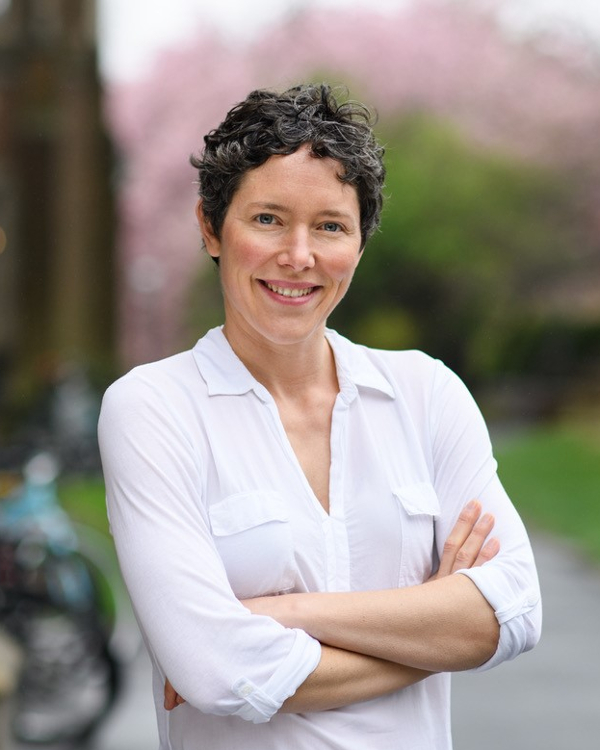
Carolyn (Lindy) McBride, Ph.D.
Princeton University
Project Title: Mapping the Combinatorial Olfactory Inputs That Drive Mosquito Host Attraction
Grant ID: DP2-AI144246
Lindy McBride is an Assistant Professor at Princeton University, jointly appointed in the Department of Ecology and Evolutionary Biology and the Princeton Neuroscience Institute. She received her Ph.D. from the University of California Davis, where she studied evolutionary genetics and ecology in plant-feeding insects under the mentorship of Dr. Sergey Nuzhdin and Dr. Michael Turelli. She then did postdoctoral work at in the Laboratory of Neurogenetics and Behavior at Rockefeller University with Leslie Vosshall. As a postdoc, Lindy moved from plant-feeding to blood-feeding insects and began examining the evolution of preference for humans in the dengue and zika vector mosquito Aedes aegypti. Her lab currently combines genomics, neurogenetics, and neural imaging to understand how the brain and behavior of disease vector mosquitoes have evolved to help them exploit human hosts and habitats. She is the recipient of the Pew Scholars Award in the Biomedical Sciences, Searle Scholar Award, Klingenstein-Simons Fellowship in the Neurosciences, and Rosalind Franklin Award in Genetics.
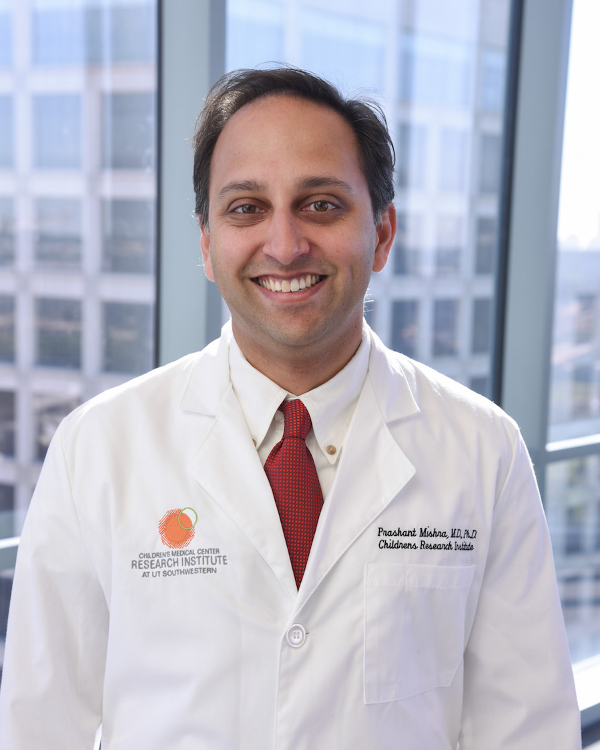
Prashant Mishra, M.D., Ph.D.
Children’s Medical Center Research Institute at UT Southwestern
Project Title: Engineering Faithful Animal Models of Mitochondrial Disease
Grant ID: DP2-ES030449
Prashant Mishra received his undergraduate degree in biochemical sciences from Harvard University. He received his M.D. and Ph.D. degrees from the University of Texas Southwestern Medical Center, where he studied the role of scaffolding in signaling pathways with Dr. Rama Ranganathan. As a fellow of the Jane Coffin Childs Memorial Fund, he conducted postdoctoral work on regulation of mitochondrial behavior in the laboratory of Dr. David Chan at the California Institute of Technology. In 2015, he joined the faculty of the Children’s Medical Center Research Institute at UT Southwestern.
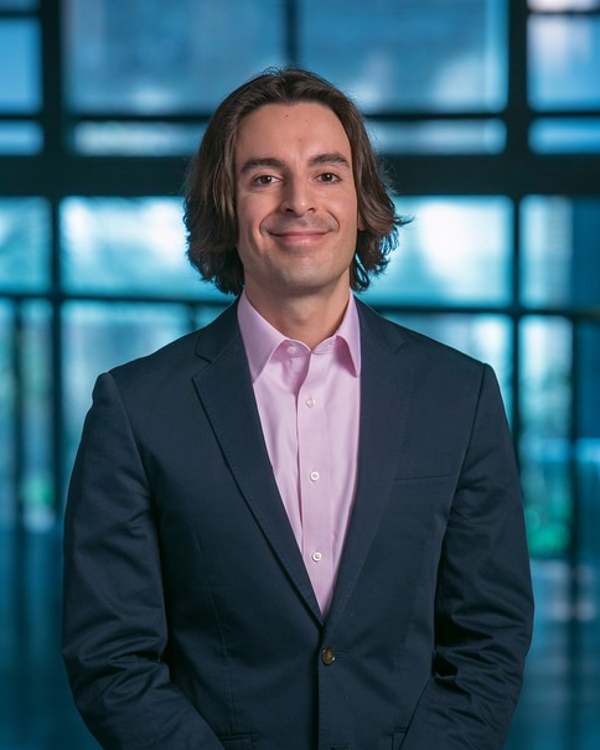
Michael J. Mitchell, Ph.D.
University of Pennsylvania
Project Title: A Data-Driven Drug Delivery (4D) Platform for Probing and Treating the Chemoresistant Bone Marrow Microenvironment
Grant ID: DP2-TR002776
Michael Mitchell is the Skirkanich Assistant Professor of Innovation in the Department of Bioengineering at the University of Pennsylvania. He is a member of the Institute of Translational Medicine and Therapeutics, the Abramson Cancer Center, the Orphan Disease Center, and the Center from Targeted Therapeutics and Translational Nanomedicine in the Perelman School of Medicine at the University of Pennsylvania. His lab's research lies at the interface of biomaterials science, drug delivery, and cellular and molecular bioengineering to fundamentally understand and therapeutically target biological barriers. He received a BE in Biomedical Engineering from Stevens Institute of Technology in 2009, a PhD in Biomedical Engineering with Prof. Michael King from Cornell University in 2014, and was a Postdoctoral Fellow in Chemical Engineering with Prof. Robert Langer at MIT from 2014-2017. He was named an American Association for Cancer Research (AACR) Scholar in Cancer Research in 2016, a STAT News Wunderkind in 2017, and is the recipient of the Merck Research Advances in Delivery Science Award from the Controlled Release Society, an NIH Ruth L. Kirschstein National Research Service Award, the Burroughs Wellcome Fund Career Award at the Scientific Interface, and the NIH Director’s New Innovator Award.

Darcie L. Moore, Ph.D.
University of Wisconsin-Madison
Project Title: The Mechanisms and Functional Role of the Asymmetric Segregation of Cellular Cargoes in Stem Cells
Grant ID: DP2-NS111818
Funded by other Office of the Director appropriations
Darcie is an Assistant Professor in the Department of Neuroscience at the University of Wisconsin-Madison. She obtained her Ph.D. with Jeffrey Goldberg at the University of Miami, identifying intrinsic regulators of axon growth regeneration in the central nervous system. For her postdoc, she moved to ETH Zurich and the University of Zurich in Switzerland to work with Sebastian Jessberger, studying the decrease in adult hippocampal neurogenesis during aging at the level of the single cell. Darcie’s lab currently focuses on understanding the mechanisms surrounding the asymmetric segregation of cargoes in mitotic neural stem cells, specifically how inheritance at the single cell level can expand to produce changes in brain structure and function during development and aging. Darcie is also the recipient of the 2016 Peter and Patricia Gruber Award for International Research from the Society for Neuroscience, a 2017 Sloan Research Fellowship, an AFAR Research Grant for Junior Faculty, and a New Investigator Grant from the Wisconsin Partnership Program.
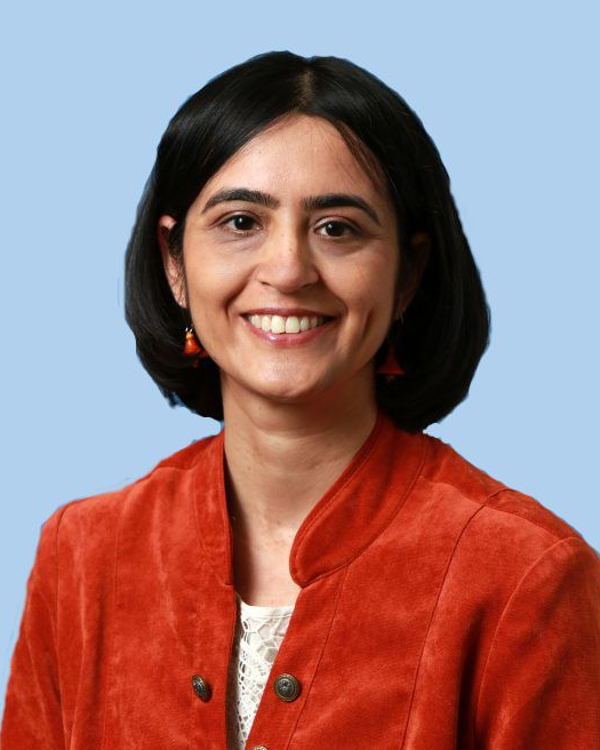
Medha M. Pathak, Ph.D.
University of California, Irvine
Project Title: Building the Brain: How Mechanical Forces Shape Human Neural Development
Grant ID: DP2-AT010376
Medha Pathak, PhD, is an Assistant Professor in the Department of Physiology & Biophysics, UC Irvine School of Medicine, and a faculty member of the Sue and Bill Gross Stem Cell Research Center at UCI. She is a biophysicist with a keen interest in basic as well as translational aspects of regenerative medicine. She obtained her doctoral degree from UC Berkeley and did postdoctoral work at Harvard Medical School and UCI. Her postdoctoral work, on the mechanically-activated ion channel Piezo1 in neural stem cells, brought to light the channel’s physiological role in determining neural stem cell fate. The long-term goal of Pathak’s lab is to understand – at the molecular, cellular and organismal levels – how mechanical forces modulate neural stem cell fate in development and repair. Her lab uses a multi-disciplinary approach, combining ideas and techniques from ion channel biophysics, cell biology, optical imaging, stem cell biology and bioengineering.
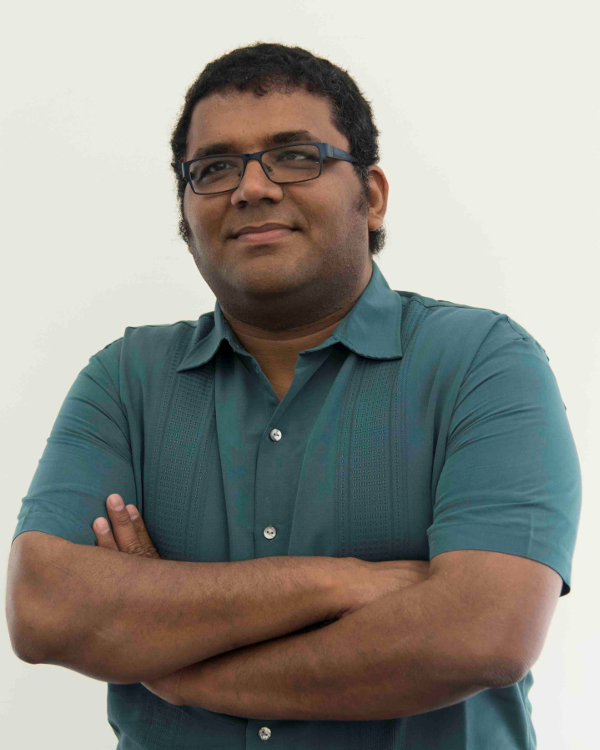
Srivatsan Raman, Ph.D.
University of Wisconsin-Madison
Project Title: Understanding Molecular Rules Governing Protein Allostery by Deep Mutational Scanning
Grant ID: DP2-GM132682
Srivatsan Raman is an Assistant Professor in the Department of Biochemistry at the University of Wisconsin-Madison. He has undergraduate and Masters degrees in chemical engineering. He received his Ph.D in Biochemistry from the University of Washington, Seattle where he developed computational tools to predict protein structures at atomic-level accuracy from a primary amino acid sequence. Later, as a Wyss Technology Development Fellow at Harvard University, he developed metabolite biosensors for engineering cellular metabolism, and devised a hybrid computational and evolutionary approach to designing new allosteric biosensors. At UW-Madison, his laboratory has interests in understanding fundamental principles of protein allostery, high-throughput functional studies of pathogenic variants in human allosteric proteins, and development of allosteric drugs.
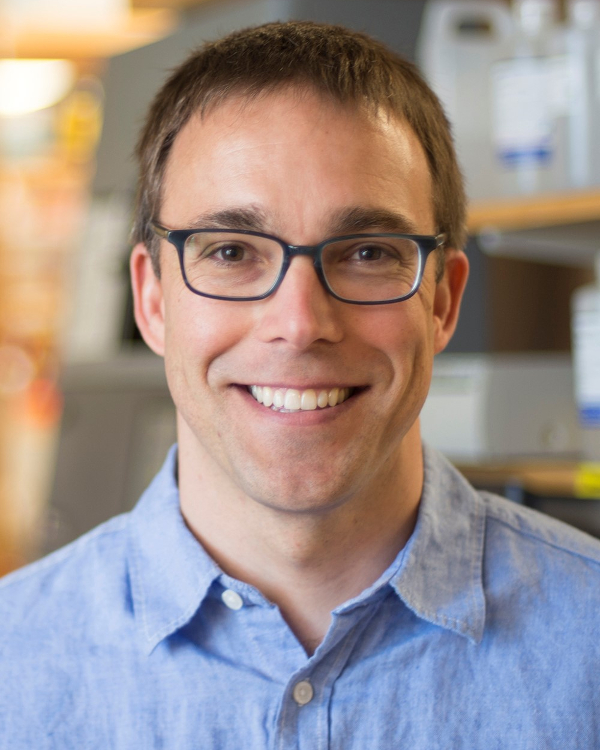
Jeremy Rock, Ph.D.
Rockefeller University
Project Title: Towards a Molecular Understanding of Persistent Tuberculosis Infection
Grant ID: DP2-AI144850
Dr. Rock is an Assistant Professor and Head of the Laboratory of Host-Pathogen Biology at the Rockefeller University. He received a B.A. in biochemistry from UC Berkeley, and a Ph.D. in biology from MIT, where he studied yeast genetics in the lab of Angelika Amon and discovered molecular mechanisms of signal transduction. Following the completion of this research, Dr. Rock endeavored to bring the so-called “awesome power of yeast genetics” to infectious disease; specifically, he sought to understand the pathogenesis of the bacterium Mycobacterium tuberculosis (Mtb). As a Helen Hay Whitney fellow at Harvard’s School of Public Health, he worked with Sarah Fortune and Eric Rubin to uncover a novel mechanism governing the evolution of antibiotic resistance in Mtb, and developed CRISPR-based genetic techniques for studying this bacterium. The Rock lab investigates the biological factors that enable Mtb to successfully infect human hosts and evade antibiotics, with the ultimate goal of using this research to develop better therapies for fighting Mtb infection.
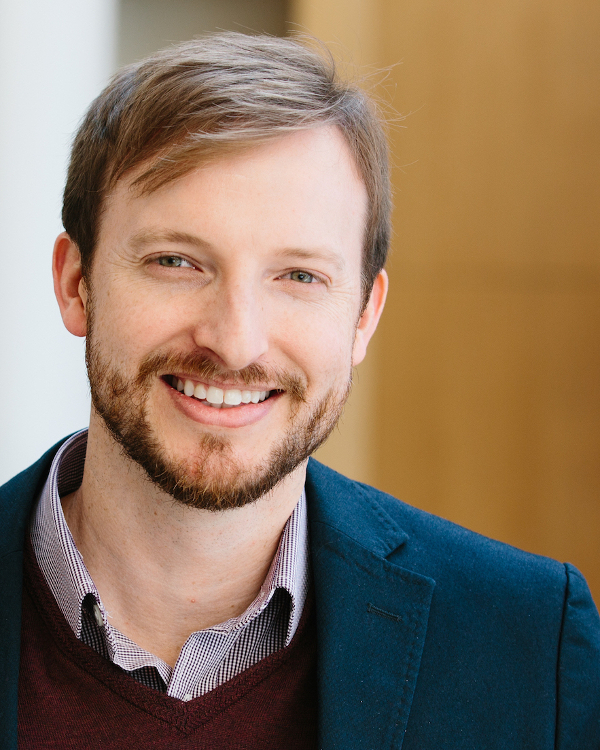
Kole T. Roybal, Ph.D.
University of California, San Francisco
Project Title: Engineering the Next-Generation of Custom Immune Cell Therapies
Grant ID: DP2-CA239143
Kole Roybal is an Assistant Professor in the Department of Microbiology and Immunology at the University of California, San Francisco. He is a member of the Parker Institute for Cancer Immunotherapy, the Helen Diller Family Comprehensive Cancer Center, and an inaugural Chan Zuckerberg Biohub investigator. He received his doctorate in Molecular Immunology from UT Southwestern Medical Center at Dallas and trained as a Jane Coffin Childs Memorial Fund postdoctoral fellow in the laboratory of Wendell Lim at UCSF and the Howard Hughes Medical Institute. As a postdoc, he developed a new class of synthetic receptors called synthetic Notch receptors, which provide unprecedented customization of therapeutic T cell responses and have implications in immunotherapy for cancer, autoimmunity, and regenerative medicine. Dr. Roybal established his lab at UCSF in March 2017, and his group is harnessing the tools of synthetic and chemical biology to engineer the immune cells therapies for cancer of the future.
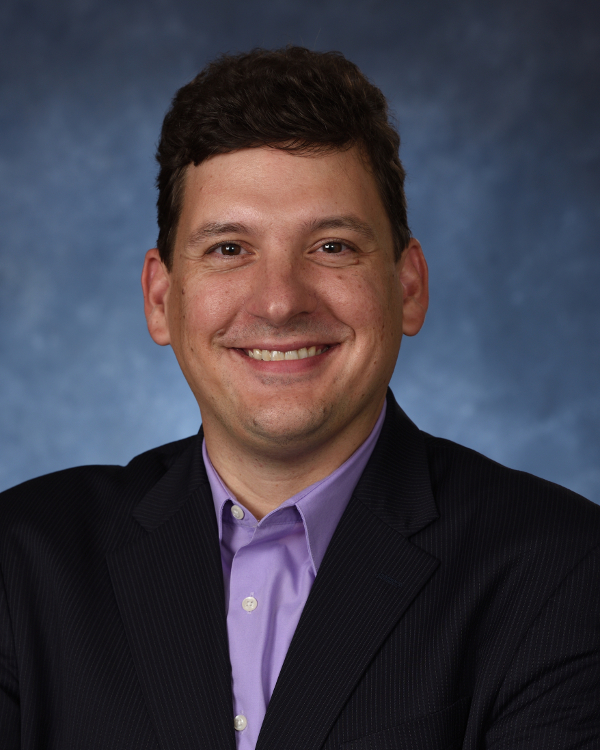
Warren Ruder, Ph.D.
University of Pittsburgh
Project Title: Creating Magnetically Inducible Synthetic Gene Networks for Cell and Tissue Therapies
Grant ID: DP2-GM132934
Funded by the National Institute of General Medical Sciences
Warren Ruder is an Assistant Professor of Bioengineering in the Swanson School of Engineering at the University of Pittsburgh. Warren received a Ph.D. in Biomedical Engineering and an M.S. in Mechanical Engineering at Carnegie Mellon University, where he explored cell and molecular mechanics in the groups of Dr. Philip LeDuc and Dr. James Antaki. Prior to graduate studies, he worked in the laboratory of Dr. Aldebaran Hofer at Harvard Medical School and the Veterans Affairs Medical Center after receving his S.B. at MIT. Warren was a postdoctoral researcher in synthetic biology in the group of Dr. James Collins at Boston University. At the University of Pittsburgh, Warren’s research group works at the interface of biology and engineering to create new biomimetic systems that provide insight into biological phenomena while also serving as platform technologies for future medical applications.
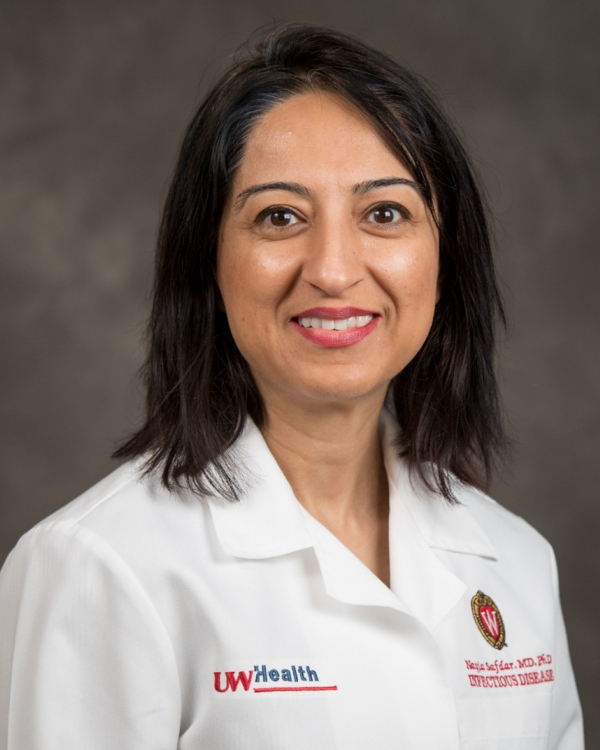
Nasia Safdar, M.D., Ph.D.
University of Wisconsin and William S. Middleton Memorial Veterans Hospital
Project Title: Modelling Applications and Systems Engineering to Reduce Infections the MASTERI Study
Grant ID: DP2-AI144244
Nasia Safdar is the Associate Chief of Staff for Research at the Madison Veterans Affairs hospital, Hospital Epidemiologist at the University of Wisconsin Health System and Professor of Infectious Diseases at the University of Wisconsin School of Medicine and Public Health. Her research has focused on identifying and testing novel interventions to reduce healthcare-associated infections. This New Innovator project will use agent based simulation models to test combinations of novel interventions to reduce Clostridium difficile infection in multiple health settings and in diverse patient populations. Complemented by systems engineering approaches to implement effective interventions with high fidelity, the data from this project will provide healthcare systems with tools to choose and implement high value prevention interventions.
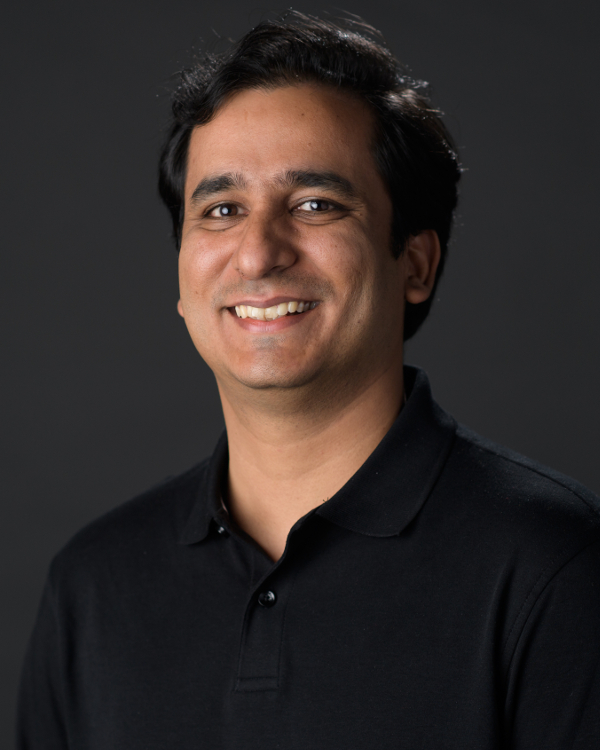
Manish Saggar, Ph.D.
Stanford University
Project Title: Only Time Will Tell: A Computational Psychiatry Approach to Model Temporal Transitions in Brain Activity as a Lens Towards Developing Better Diagnostic Nosology for Psychiatric Illness
Grant ID: DP2-MH119735
Funded by the National Institute of Mental Health
Manish Saggar is an Assistant Professor in the Department of Psychiatry & Behavioral Sciences at Stanford University. He graduated from Indian Institute of Information Technology (Allahabad) and then went to the University of Texas at Austin for his Ph.D., where he examined how intensive meditation training affects brain dynamics in the lab of Dr. Risto Miikkulainen. Followed by a postdoctoral fellowship in Psychiatry at Stanford University under the guidance of Dr. Allan L. Reiss, Manish established his independent computational neuropsychiatry lab at Stanford in 2017. Dr. Saggar's lab is dedicated to developing computational methods to capture the brain’s overall dynamical organization in health and disease. In addition to the NIH Director’s New Innovator Award, Dr. Saggar has received the NIH Career Development Award (K99/R00) and the NARSAD Young Investigator Award from the Brain & Behavior Foundation.

Tiffany C. Scharschmidt, M.D.
University of California, San Francisco
Project Title: Decoding and Harnessing Microbial Tuning of T Cell Responses in Early Life
Grant ID: DP2-AI144968
Funded by the National Institute of Allergy and Infectious Diseases
Tiffany Scharschmidt is an Assistant Professor in the Department of Dermatology at the University of California-San Francisco (UCSF). She received her A.B. from Princeton and her M.D. from UCSF and completed her scientific training in the labs of Julia Segre, Michael Fischbach and Michael Rosenblum where she acquired expertise in both microbiology and immunology. Her postdoctoral work demonstrated that adaptive immune tolerance to commensal skin bacteria is preferentially established in neonatal life in conjunction with coordinated recruitment of regulatory T cells into neonatal skin by commensals and hair follicles. Her independent lab investigates host-directed and microbe-directed mechanisms that promote healthy dialogue between skin bacteria and the adaptive immune system, with a focus on early life events. Dr. Scharschmidt is also the recipient of a Burroughs Wellcome Career Award for Medical Scientists, the AAD Young Investigator of the Year Award and a Doris Duke Clinician-Scientist Development Award.

Mark Sheffield, M.Sc., Ph.D.
The University of Chicago
Project Title: Sub-Cellular Resolution Functional Imaging and Optogenetic Manipulation of Identified Memory Circuits During Behavior
Grant ID: DP2-NS111657
Mark Sheffield is an Assistant Professor in the Neurobiology Department at The University of Chicago. Dr. Sheffield completed his undergraduate studies at The University of Nottingham, England, before moving to Chicago where he received his Ph.D. in Neurobiology at Northwestern University as a Northwestern Presidential Fellow under the guidance of Dr. Nelson Spruston. Dr. Sheffield then joined Dr. Daniel Dombeck’s lab at Northwestern University as a Life Sciences Research Fellow where he determined the role of active dendritic signals in hippocampal place field formation, precision, and stability. At The University of Chicago, his lab is focused on understanding the mechanisms of memory formation and recall by using 2-photon functional imaging and optogentic approaches to track and manipulate the activity of neurons that participate in specific memories. In addition to the NIH Director’s New Innovator Award, his lab is supported by the Searle Scholars Program, The Whitehall Foundation, and a Sloan Research Fellowship.
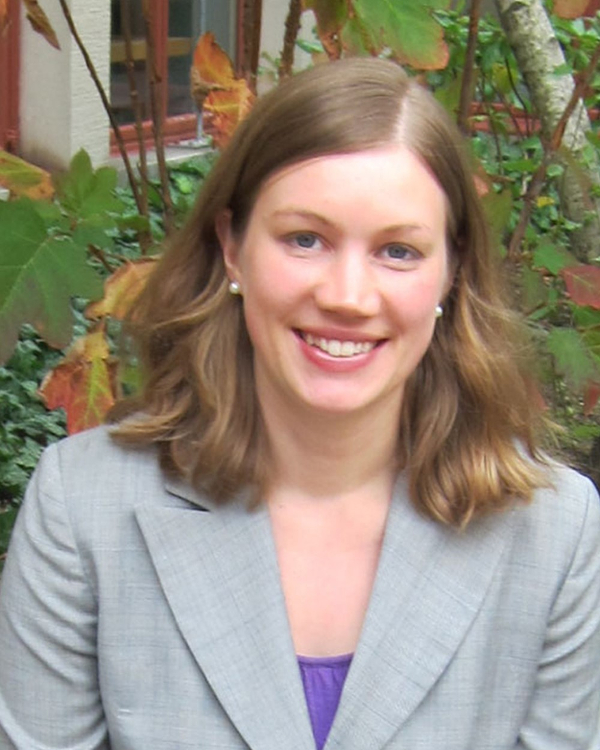
Ellen M. Sletten, Ph.D.
University of California, Los Angeles
Project Title: Bioorthogonal Host-Guest Chemistry for Tandem Imaging and Therapy
Grant ID: DP2-GM132680
Dr. Ellen Sletten is an Assistant Professor in the Department of Chemistry and Biochemistry at UCLA. She obtained her Ph.D. in Chemistry from UC Berkeley in 2011, working in the group of Dr. Carolyn Bertozzi on the development of bioorthogonal chemistries. Upon graduation, Dr. Sletten moved to Massachusetts Institute of Technology as an NIH postdoctoral fellow in Dr. Timothy Swager’s group where she explored dynamic fluorescence-based sensors. In 2015, Dr. Sletten began her independent career at UCLA and has established an interdisciplinary research program that leverages the tools of physical organic chemistry to create new therapeutic and diagnostic technologies. In addition to the NIH Director’s New Innovator Award, Dr. Sletten is a 2018 Sloan Fellow in Chemistry and currently holds the McTague Career Development Chair at UCLA.
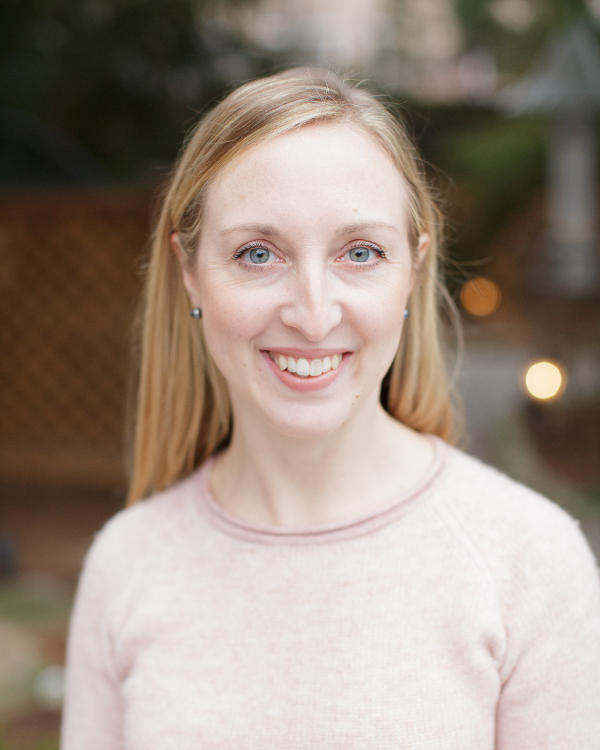
Sabrina Leigh Spencer, Ph.D.
University of Colorado-Boulder
Project Title: Proliferation-Quiescence Control in Single Cells: Integration of Mitogen, Nutrient, and Stress Signaling
Grant ID: DP2-CA238330
Dr. Spencer is an Assistant Professor in the Department of Biochemistry at the University of Colorado-Boulder, as well as a member of the BioFrontiers Institute and the University of Colorado Comprehensive Cancer Center. She received her bachelor's degrees from the George Washington University, and her PhD from MIT in Computational and Systems Biology working with Peter Sorger on the origins of cell-to-cell variability in apoptosis. She then became a Damon Runyon Postdoctoral Fellow in Tobias Meyer's lab at Stanford University where she studied the proliferation-quiescence decision at the single-cell level using a novel live-cell sensor for Cyclin-Dependent Kinase 2 activity. Dr. Spencer started her own lab at the University of Colorado-Boulder in August 2014, where she and her lab are using single-cell time-lapse microscopy and cell tracking to study how variations in cell signaling lead to heterogeneity in cell-fate decisions. Dr. Spencer is also a recipient of a K22 Career Transition Award from the National Cancer Institute, a Boettcher Foundation Early Career Investigator Award, a Kimmel Scholar Award, a Searle Scholar Award, a Beckman Young Investigator Award, and a Pew-Stewart Scholar Award.
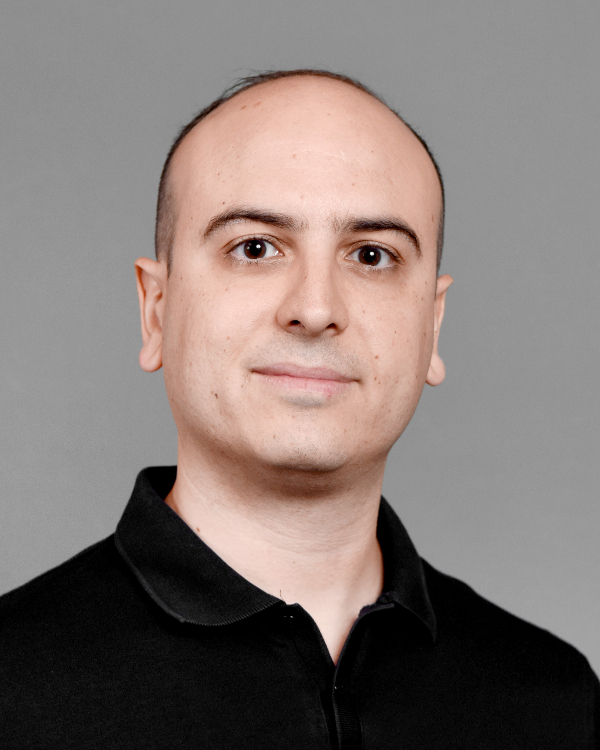
Nicholas Stephanopoulos, Ph.D.
Arizona State University
Project Title: Chemical Synthesis of G Protein-Coupled Receptors Using Sequential DNA-Templated
Grant ID: DP2-GM132931
Funded by the National Institute of General Medical Sciences
Nicholas Stephanopoulos received his A.B. in chemistry from Harvard University in 2004, followed by a Master’s degree from MIT in chemical engineering and a PhD from Berkeley in chemistry in 2010, working with Prof. Matthew B. Francis. Nick then moved to Northwestern University as an NIH NRSA postdoctoral fellow under Prof. Samuel I. Stupp before accepting an independent position at Arizona State University in 2015, in the School of Molecular Sciences and Biodesign Center for Molecular Design and Biomimetics. His research merges protein and peptide chemistry with DNA nanotechnology to create hybrid nanomaterials for medicine, biology, energy, and fundamental science. His New Innovator Award project aims to develop a DNA-templated method for the de novo synthesis of full-length, functional membrane proteins like GPCRs from synthetic peptides, followed by their structural characterization using cryo-electron microscopy. In addition to the New Innovator Award, Nick has received the AFOSR Young Investigator Program award, the Elsa U. Pardee Foundation Grant for Cancer Research, and the NSF CAREER Award.
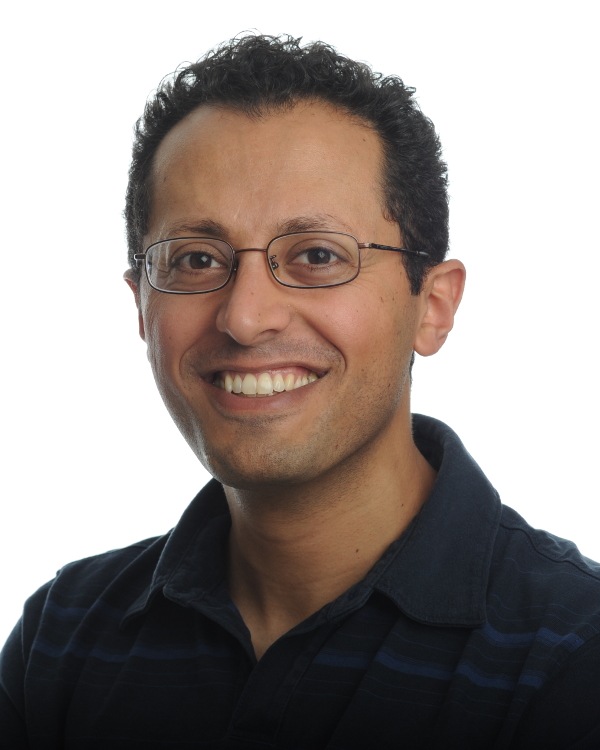
Michael R. Tadross, M.D., Ph.D.
Duke University
Project Title: Interrogating Dynamics of Whole-Brain Volumes with Cell Type-Specific Pharmacology
Grant ID: DP2-MH119425
Michael Tadross is an assistant professor of Biomedical Engineering at Duke University, where he develops genetically encoded technologies to target clinically relevant drugs to specific cell types in the brain. He applies these methods to mouse models of neuropsychiatric disease to determine which brain cell types are responsible for beneficial vs harmful effects, providing a roadmap for development of next-generation targeted therapeutics. He received his BS degree in electrical and computer engineering at Rutgers University, an MD/PhD degree in biomedical engineering at the Johns Hopkins School of Medicine, completed postdoctoral study in cellular neuroscience at Stanford University, and began his independent research program as a Fellow at the HHMI Janelia Research Campus.
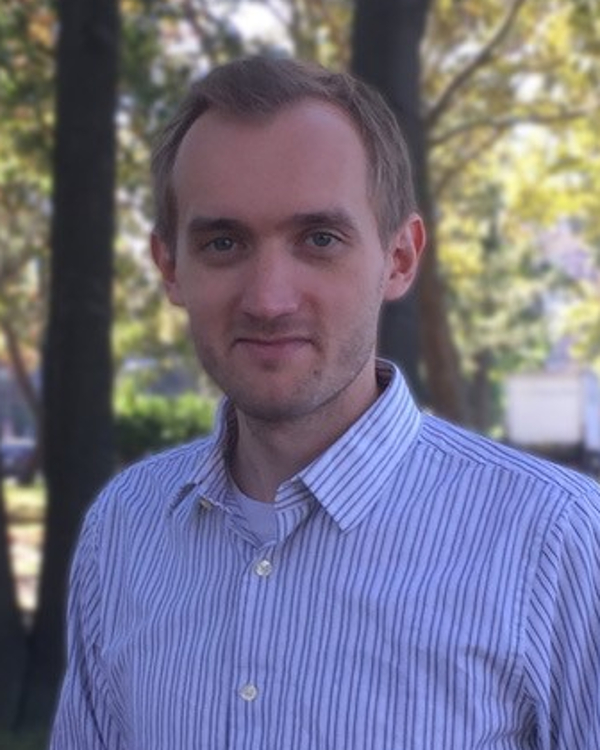
Denis Titov, Ph.D.
University of California, Berkeley
Project Title: Genetically Encoded Tools for Manipulation of Metabolism In Vivo
Grant ID: DP2-GM132933
Funded by the National Institute of General Medical Sciences
Denis Titov joined the faculty of the Department of Molecular and Cell Biology at the University of California, Berkeley in 2018. His lab is interested in understanding how changes in energy metabolism affect aging and age-associated diseases. Denis received his undergraduate degree in chemistry from Novosibirsk State University, Russia and his PhD in Pharmacology from Johns Hopkins University, where he investigated the mechanism action of bioactive natural products in the laboratory of Dr. Jun O. Liu. He then completed his postdoctoral fellowship at the Massachusetts General Hospital in the laboratory of Dr. Vamsi K. Mootha, where he pioneered novel approaches for studying and manipulating energy metabolism in living cells.
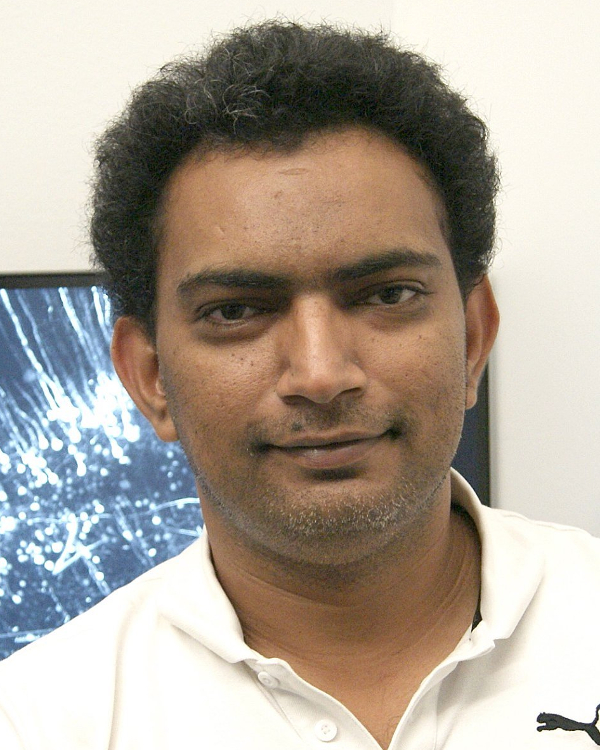
Raju Tomer, Ph.D.
Columbia University
Project Title: A Comparative Approach for Decomposing the Mammalian Brain Architectural Complexity
Grant ID: DP2-MH119423
Raju Tomer joined Columbia University in 2016 as an Assistant Professor in the Department of Biological Sciences with affiliations to the Data Science Institute and Neuro Technology Center. Dr. Tomer completed his undergraduate studies at Indian Institute of Technology (IIT) Delhi, and his Ph.D. at European Molecular Biology Laboratory (Heidelberg), where he developed and applied novel methods to unravel the deep evolutionary origins of cell-types in higher-order brain centers. In his postdoctoral studies in the lab of Prof. Karl Deisseroth at Stanford University, Dr. Tomer developed pioneering microscopy and histological technologies for high-resolution mapping of brain structure and function. Currently in his lab at Columbia University, Dr. Tomer continues to develop new approaches required for systematically understanding the brain structural and functional plasticity in the normal and diseased brains.
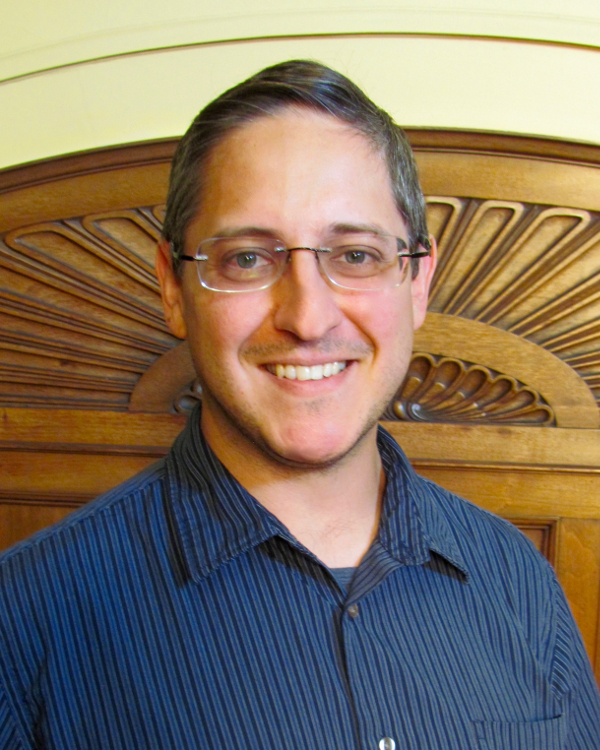
Carlos Ernesto Vargas-Irwin, Ph.D.
Brown University
Project Title: Synergistic Effector/Environment Encoding: A New Perspective on Motor Cortex and Brain-Computer Interfaces
Grant ID: DP2-NS111817
Funded by other Office of the Director appropriations
Carlos Ernesto Vargas-Irwin enrolled at Brown University in 1998 after finishing secondary education in his hometown of Cali, Colombia. After earning a BS in Neuroscience working in the lab of Dr. John Donoghue (completing his honors thesis under the supervision of Dr. Nicho Hatsopoulos), Carlos stayed at Brown working as a laboratory technician and then joined the Neuroscience Graduate program in 2003. For his doctoral thesis project (featured in Nature’s Research Highlights), he collaborated with Dr. Michael Black to combine Hollywood-style motion tracking and micro electrode array recording technology to demonstrate that dexterous upper-limb movements can be accurately reconstructed from neural activity recorded from relatively small areas (4x4mm) of primate motor cortex. After completing his Ph.D. in 2010, Carlos continued to work on neural decoding models in the Donoghue Lab, becoming an Assistant Professor in 2016. During this time he also joined the BrainGate2 clinical trial (led by Dr. Leigh Hochberg) in order to develop neural interface devices aiming to restore autonomy and independence to people with limited mobility due to neuromotor disorders.
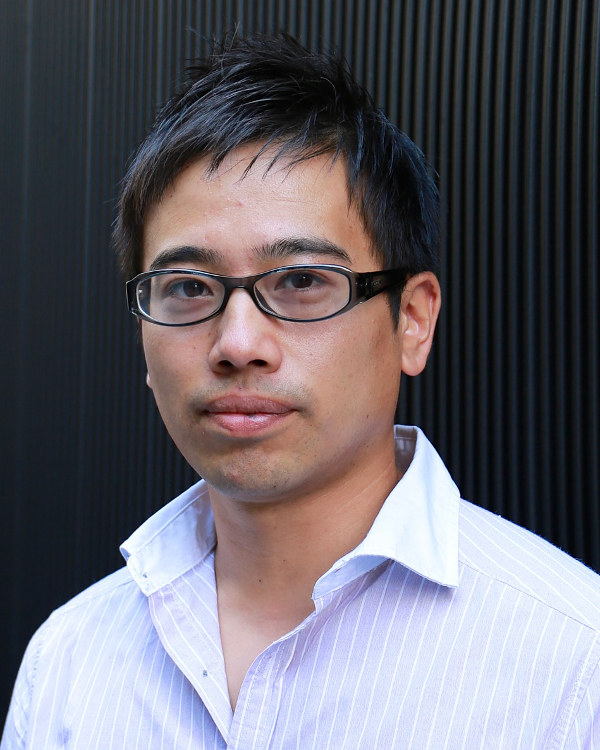
Shigeki Watanabe, Ph.D.
Johns Hopkins University School of Medicine
Project Title: Reviving Electron Microscopy for Synaptic Cell Biology
Grant ID: DP2-NS111133
Shigeki Watanabe received his PhD from the University of Utah in 2013. For his postdoctoral work, he moved to Christian Rosenmund’s laboratory in Berlin, Germany, and studied synaptic transmission and plasticity in mammalian central synapses. In 2016, Watanabe established his own laboratory in the Department of Cell Biology at the Johns Hopkins University. The Watanabe laboratory studies the cellular and molecular basis of synaptic transmission and plasticity. In addition to the New Innovator’s Award from NIH, He is the recipient of 2013 Nemko Prize from the Society for Neuroscience, 2015 Eppendorf and Science Prize, Emil du Bois-Reymond Prize from the German Physiological Society, and Merton Bernfiled Award from the American Society for Cell Biology.
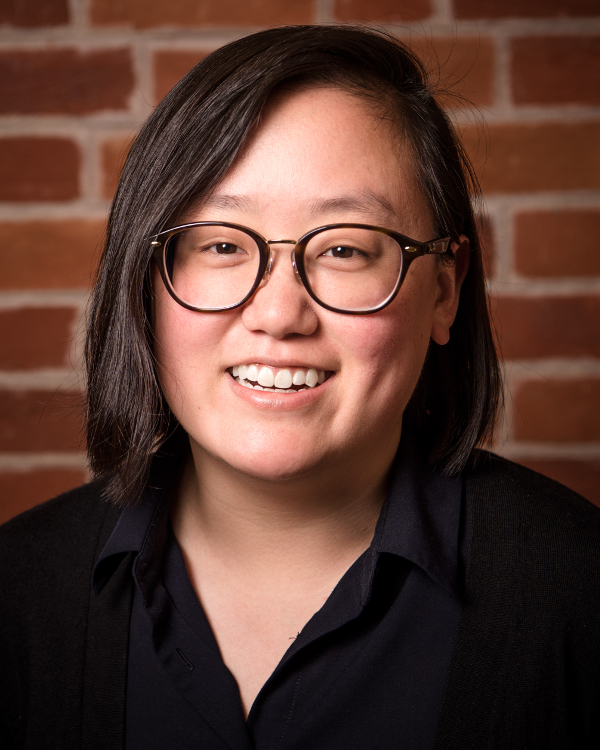
Amy Wesolowski, Ph.D.
Johns Hopkins Bloomberg School of Public Health
Project Title: Disease Emergence and Elimination: Using Mobility Data to Inform Spatial Disease Dynamics
Grant ID: DP2-LM013102
Dr. Wesolowski is currently an Assistant Professor at Johns Hopkins Bloomberg School of Public Health. Previously, she was a postdoctoral fellow in Ecology and Evolutionary Biology at Princeton University (2016-2017) and at the Harvard T.H. Chan School of Public Health (2014-2016) in the Center for Communicable Disease Dynamics. She previously studied engineering and public policy at Carnegie Mellon University. Her work has focused on developing methods to utilize novel sources of data to quantify human travel patterns and their relationship to infectious disease transmission and control.
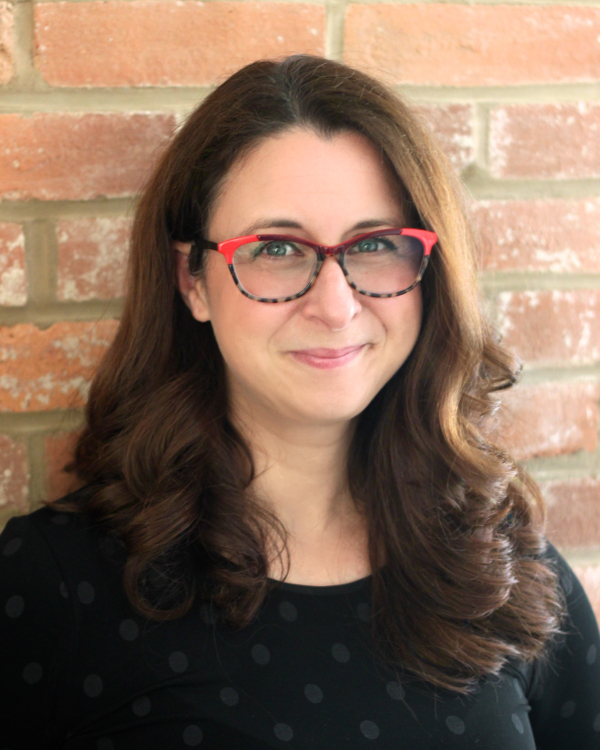
Kathryn A. Whitehead, Ph.D.
Carnegie Mellon University
Project Title: Fate, Function and Genetic Engineering of Breast Milk Cells for Infant Therapy
Grant ID: DP2-HD098860
Kathryn A. Whitehead is an Assistant Professor in the Departments of Chemical Engineering and Biomedical Engineering (courtesy) at Carnegie Mellon University. Her lab develops RNA and protein drug delivery systems and has a long-term goal of predicting the behavior of delivery materials in humans. She received an H.B.Ch.E Degree with Distinction from the University of Delaware and a Ph.D. in chemical engineering from the University of California, Santa Barbara before serving as an NIH Ruth L. Kirschstein Postdoctoral Fellow at the Massachusetts Institute of Technology. Dr. Whitehead was named as one of the Brilliant Ten by Popular Science in 2015 and is the recipient of numerous other awards, including the DARPA Young Faculty Award and Director’s Fellowship, the George Tallman Ladd Research Award, and the Kun Li Award for Excellence in Education. Her 35+ publications have been cited over 4,500 times, and several of her patents have been licensed and sublicensed for reagent and therapeutic use.
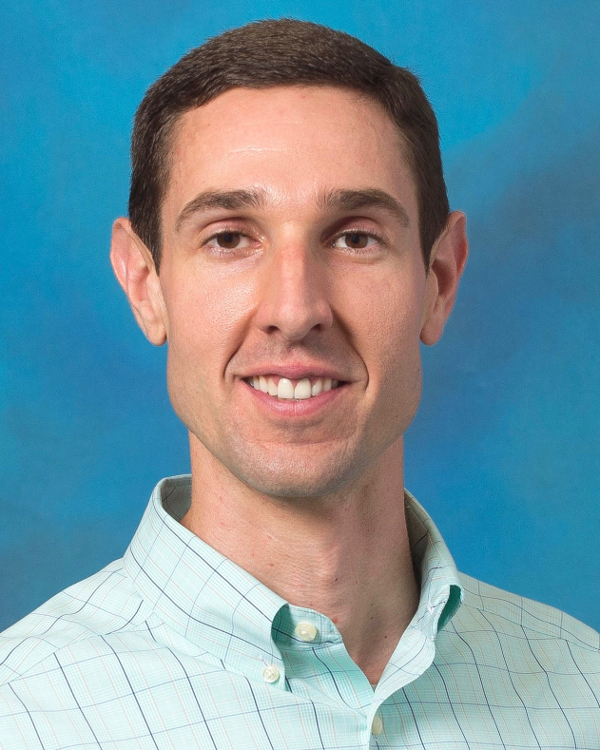
Erik S. Wright, Ph.D.
University of Pittsburgh
Project Title: Uncovering Synergistic Antibiotic Cocktails with Comparative Genomics
Grant ID: DP2-AI145058
Erik Wright is an Assistant Professor in the Department of Biomedical Informatics at the University of Pittsburgh. Dr. Wright completed his undergraduate studies at Cornell University in Electrical and Computer Engineering. He then worked as an engineer at Apple before transitioning to biology in graduate school. During his Ph.D. in Microbiology at the University of Wisconsin-Madison, he studied the ecology and evolution of naturally antibiotic producing bacteria. At the University of Pittsburgh, his lab combines experimental and computational approaches to develop innovative solutions to the problem of antibiotic resistance.
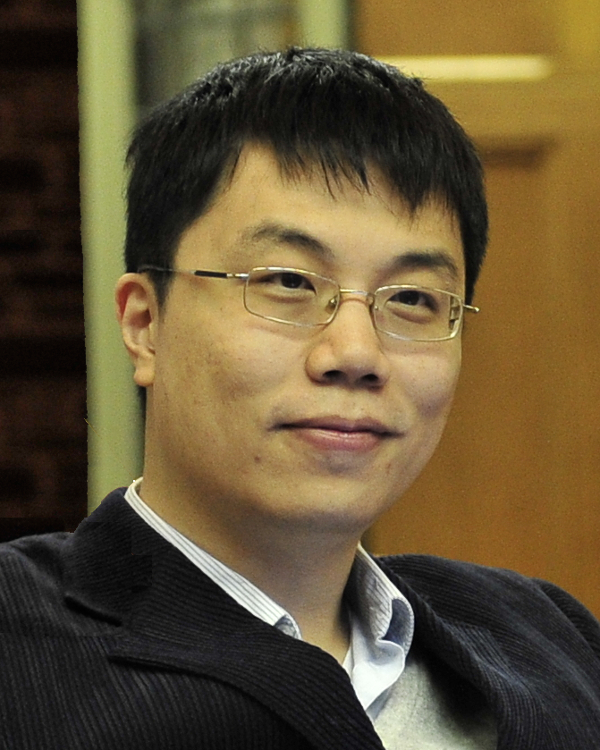
Ke Xu, Ph.D.
University of California, Berkeley and Chan-Zuckerberg Biohub
Project Title: Intracellular Phase Separation at the Nanoscale: A Functional Super-Resolution Approach
Grant ID: DP2-GM132681
Ke Xu is an assistant professor of Chemistry and a Chan-Zuckerberg Biohub Investigator at UC-Berkeley. He received a B.S. from Tsinghua University, did his Ph.D. work at Caltech with Prof. Jim Heath, and completed his postdoctoral training with Prof. Xiaowei Zhuang at Harvard University. His current research develops new physicochemical tools to interrogate biological, chemical, and materials systems at the nanoscale with extraordinary resolution, sensitivity, and functionality. To this end, his lab takes a multidimensional approach that integrates advanced microscopy, spectroscopy, cell biology, and nanotechnology. Ke is a Sloan Research Fellow, a Packard Fellow for Science and Engineering, a Beckman Young Investigator, and a Pew Biomedical Scholar, and has received an NSF CAREER Award and the Talented 12 by C&EN.
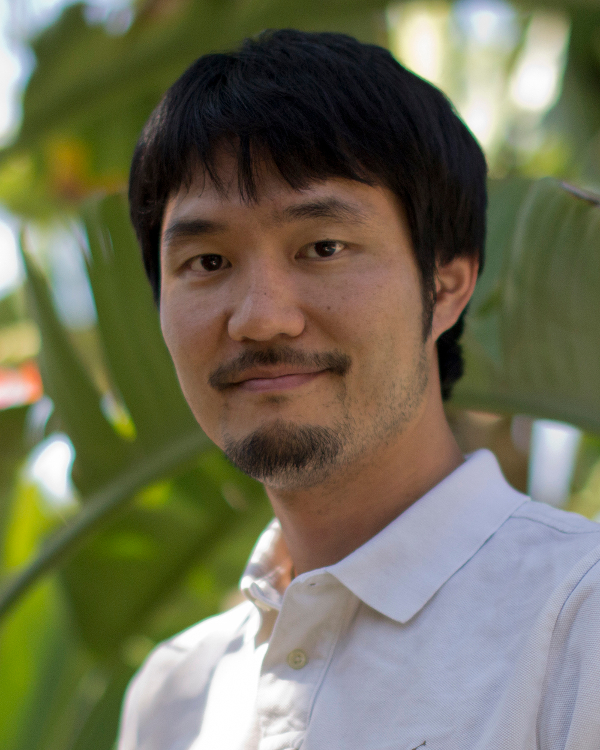
Naoki Yamanaka, Ph.D.
University of California, Riverside
Project Title: Membrane Steroid Hormone Transporters in Development and Reproduction
Grant ID: DP2-GM132929
Funded by other Office of the Director appropriations
Naoki Yamanaka is an Assistant Professor in the Department of Entomology at the University of California, Riverside. After receiving his Ph.D. from the University of Tokyo in 2007, Dr. Yamanaka joined the laboratory of Dr. Michael O’Connor at the University of Minnesota, where he identified molecular mechanisms of how the insect steroid hormone ecdysone is released from steroidogenic cells in flies. At UC Riverside, his lab is focused on understanding how insect hormones control physiology and behavior. The lab’s long-term goal is to develop methodologies and tools to control different types of insects by manipulating their endocrine signaling pathways. In addition to the NIH Director’s New Innovator Award, Dr. Yamanaka is also a recipient of the NIH Pathway to Independence Award and the Pew Biomedical Scholars Award.
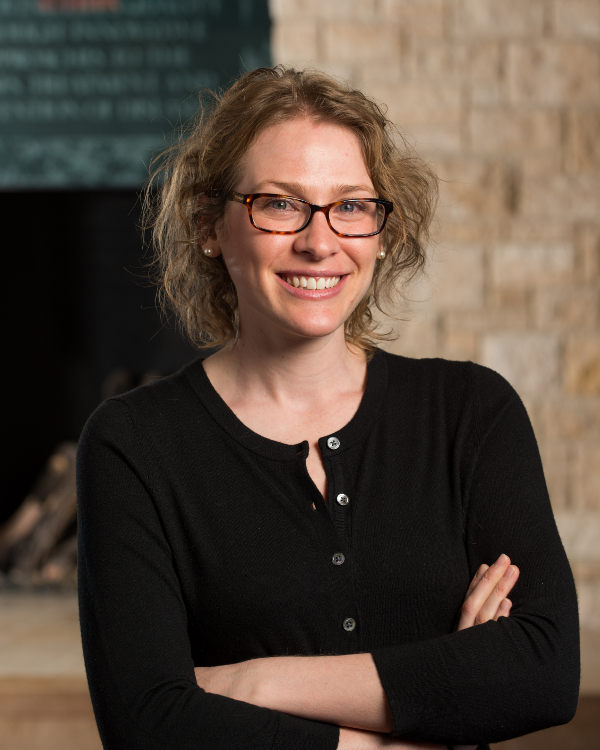
SaraH E. Zanders, Ph.D.
The Stowers Institute for Medical Research, University of Kansas Medical Center
Project Title: Models of Selfishness: Molecular and Evolutionary Analyses of the Wtf Meiotic Drivers
Grant ID: DP2-GM132936
Funded by the National Institute of General Medical Sciences
SaraH graduated with a B.S. in Biology from the University of Iowa, where she acquired a passion for genetics and meiosis working in Dr. Robert Malone’s lab. She then went on to complete her Ph.D. thesis research on the mechanisms of meiotic recombination in the lab of Eric Alani at Cornell University. While at Cornell, SaraH developed an appreciation for the power of molecular evolutionary approaches to study biology, which motivated her to pursue postdoctoral training with Harmit S. Malik, an evolutionary biologist at The Fred Hutch. Now, in her own lab at The Stowers Institute, SaraH fuses molecular genetic and evolutionary approaches to explore how genetic parasites contribute to infertility.
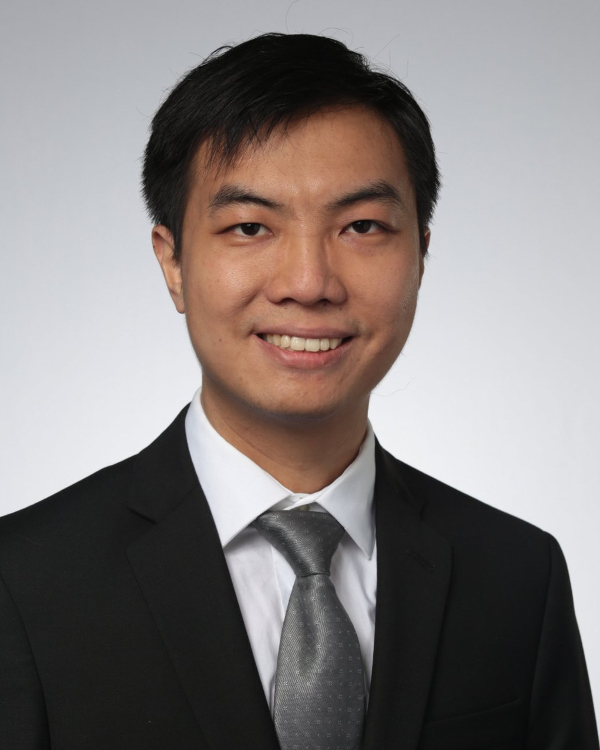
Yongxin (Leon) Zhao, Ph.D.
Carnegie Mellon University
Project Title: Highly Multiplexed Nanoscale Imaging Platforms for Profiling and Interrogation of Complex Diseases
Grant ID: DP2-EB028111
Yongxin (Leon) Zhao is an Assistant Professor in the Department of Biological Sciences at Carnegie Mellon University. He received a B.Sc. from Sun Yat-Sen University, and his Ph.D. in Chemistry from University of Alberta, where he developed a suite of genetically encoded fluorescent indicators for calcium ions (GECO calcium ion indicators) and membrane potential (QuasAr voltage indicators), under the guidance of Drs. Robert Campbell and Jed Harrison. Dr. Zhao then conducted his postdoctoral research at the Synthetic Neurobiology group led by Dr. Ed Boyden in the Media Lab at Massachusetts Institute of Technology, where he developed Expansion Pathology, a pathology-optimized tissue expansion technique for nanoscale imaging of clinical specimens. Since he joined the faculty at Carnegie Mellon University in 2017, Dr. Zhao has established a research program to develop new imaging tools for mapping biomolecules in various biological systems with nanoscale precision as well as recording dynamics of biological processes, and deploy them to study molecular mechanisms underlying complex biological functions and diseases, fostering new diagnoses and therapeutics.



